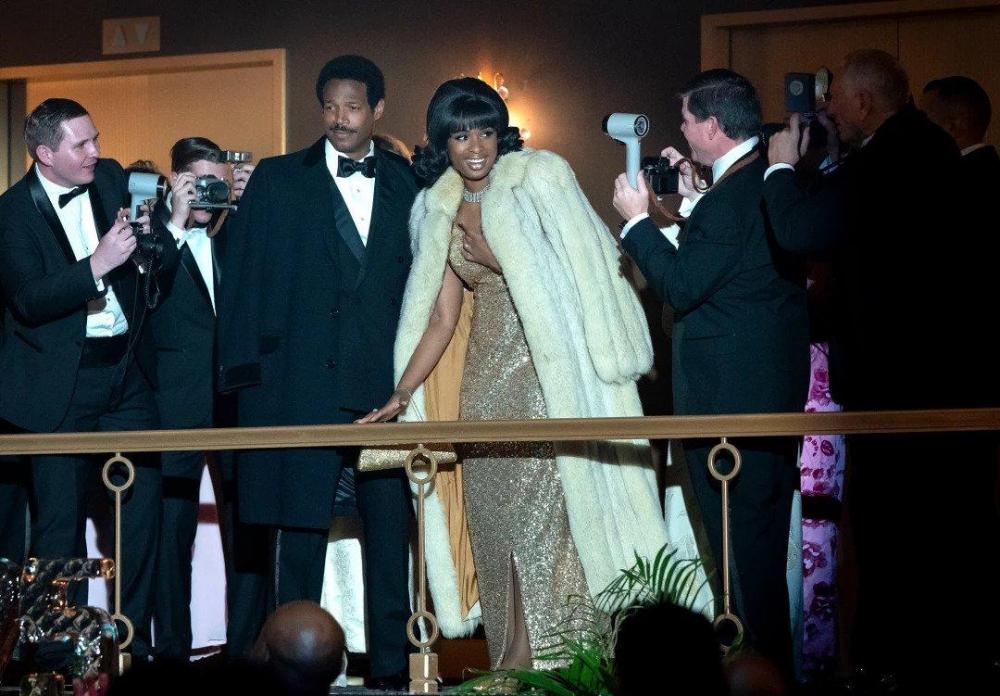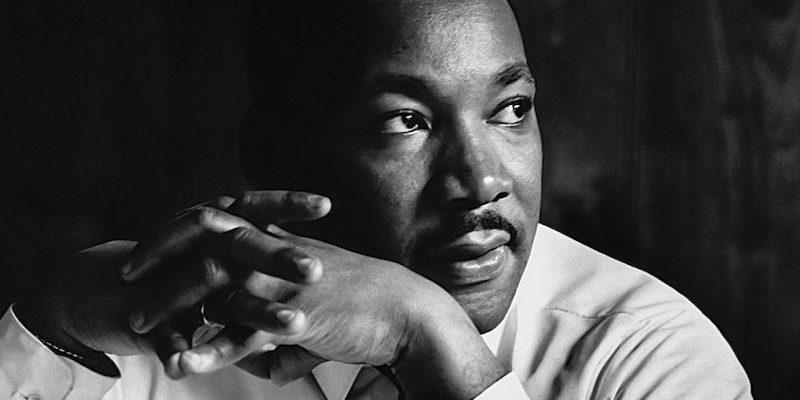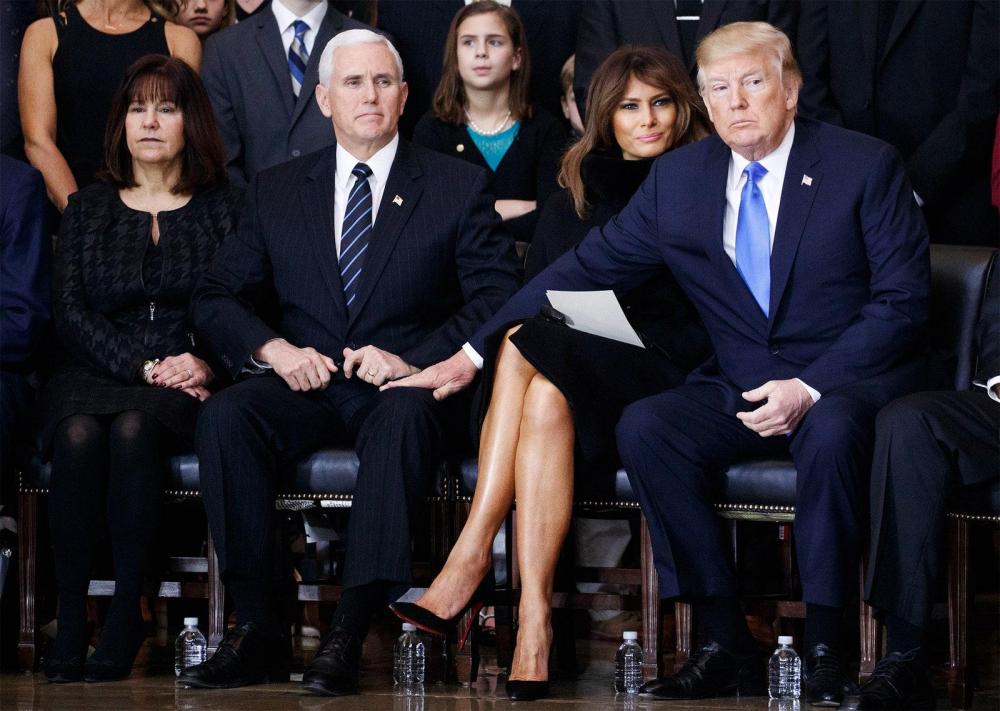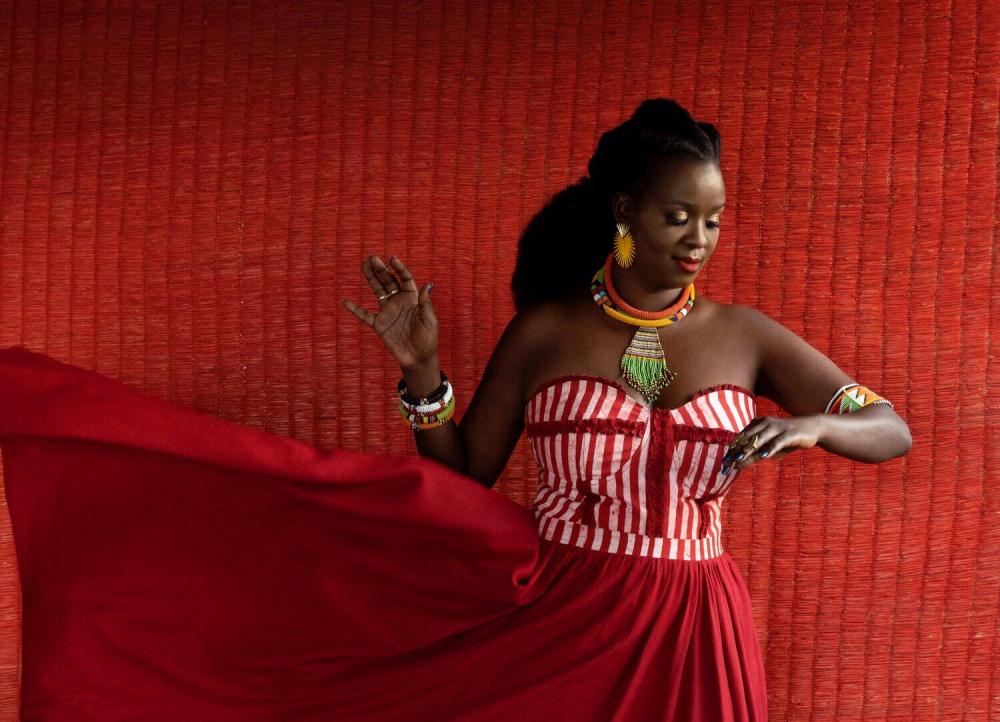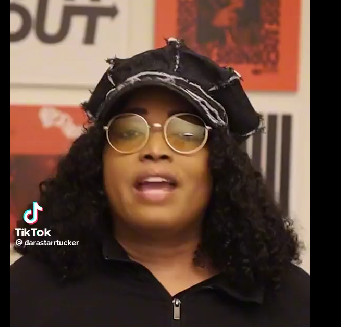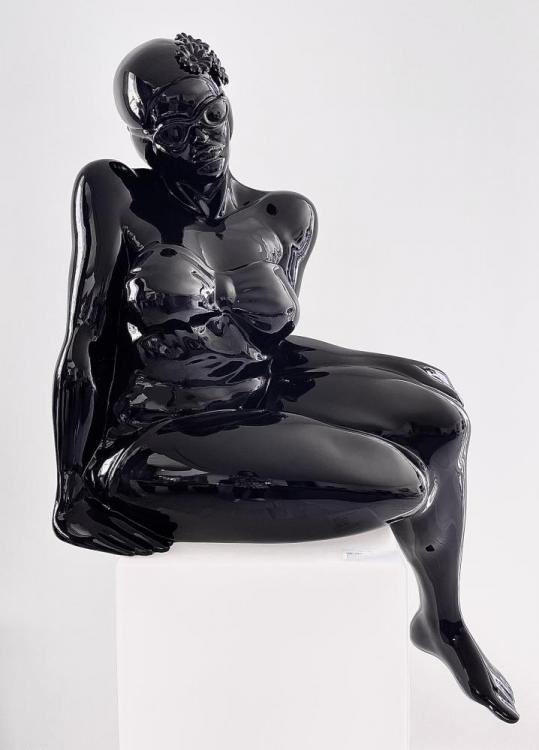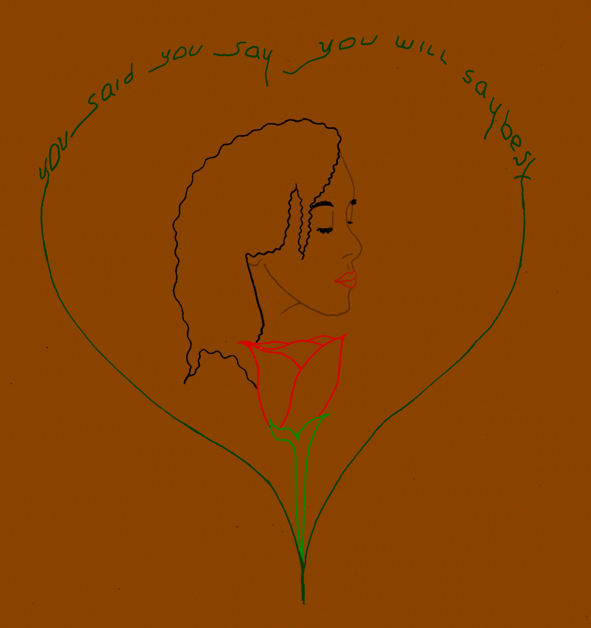Search the Community
Showing results for 'the woman king' in status updates posted by richardmurray.
-
MAry j blige plays dinah washington,Blige is a little more chunkier but great vocal choice since they are singing all the songs. Marlon wayans may finally play another role his sister or I can watch with him. ... I think one of the most amazing things about the otis redding song is how, aretha franklin did something many black musicians did through the years, still continue to do, ala every breath you take being turned into a mortuary song. But she did it the best. She proves with her rendition of respect how underrated the way one produces an artwork gives them ownership. A person has to compose a song/write lyrics, but she proves with respect that the singing of a song is unique enough to warrant ownership. A point I think is underrated. And i know it is not legal cannon, but I think it is true musically. What would the usa anthem be without black singers? ... to the time period, ray charles/johnny cash/aretha franklin/i am forgetting the white female musican's name, the coal miners daughter, but they all came up at a time where the music industry was starting to lose its financial form from the 1800s. The days of ma rainey's black bottom where all musicians received nothing for their work was ending.
https://www.latimes.com/entertainment-arts/movies/story/2021-08-06/jennifer-hudson-aretha-franklin-respectHow Jennifer Hudson found new ‘Respect’ for Aretha Franklin in the role of a lifetime
BY LORRAINE ALITELEVISION CRITIC
AUG. 6, 2021 9 AM PT
Jennifer Hudson knew she had her work cut out for her when she agreed to play the Queen of Soul. “You just can’t wake up one morning and decide ‘I’m gonna be Aretha Franklin,’” said Hudson. “I mean, her voice. Her legacy. The songs. Who she is to all of us. It was daunting. There were times when I was like, ‘Jennifer, what have you done?’”The answer is “Respect,” the highly anticipated biopic sanctioned by Franklin, who handpicked Hudson for the role before her death in 2018. The film chronicles the late singer’s rise from her father’s church choir to international stardom, shining a light on the talent and the stories behind the songs.
“‘Respect’ is the song and the hit we all love from the gifted Aretha Franklin,” says Hudson. “But when you add her life narrative around it, it’s that much more powerful. Understanding the era she grew up in and the courage that she had and her activism. Her relationship with Dr. King and Angela Davis. It’s like, wow, you see all sides of the human and the way she used her art to reflect herself and support others and be an advocate. So now it’s more than just the song. It’s more than just the artist. Knowing her history helped me understand her legacy and understand why her impact has been so great.”
The film, which hits theaters Aug. 13 after decades of planning and a year of COVID-related release delays, moves from Franklin’s religious upbringing with the charismatic but controlling Reverend C.L. Franklin to her hard-won stardom of the 1960s to a spiritual return to gospel music with her highest-selling album ever, 1972’s “Amazing Grace.”
Rather than lip sync to pre-recorded tracks, Hudson belted out The Queen’s material live on set during filming (“Aint No Way,” “Chain of Fools,” “Think”) as did the rest of the cast — which includes Tony award winner Audra McDonald portraying young Aretha’s mother and Broadway talents Hailey Kilgore and Saycon Sengbloh playing her sisters Carolyn and Erma Franklin (the women’s harmonizing alone is worth the price of admission).
But Hudson is a singular force. The former “American Idol” contestant, who like Franklin grew up singing in church, emotes with the same passion that won her an Oscar for 2006’s “Dreamgirls,” using her powerhouse vocals to re-create iconic moments in music history including the birth of Aretha’s own sound in Muscle Shoals’ Fame studio and a knock-‘em-dead performance of the film’s namesake at Madison Square Garden. With Hudson and other music-minded folks on board, “Respect” is the rare biopic where the celebrated artist’s compositions also land a starring role.
“I wanted to make a movie where music was front and center,” said director Liesl Tommy. Known for her work on Broadway, including her Tony-nominated direction of the play “Eclipsed,” “Respect” marks Tommy’s first time directing a feature film. “Aretha was capable of so much power when she sings and so much delicacy and nuance. I wanted the way that we feel listening to her music to be the way that we felt watching the film. Another thing that guided me is that she has so much emotion in her singing. I felt that the film should be emotional too because that’s who she was. And even though she was very protective of her private life, her private life is all over her music.”
Written by Tracey Scott Wilson (a playwright who has also written for TV series including “The Americans” and “Fosse/Verdon”), “Respect” stars Forest Whitaker as Franklin’s father, Marlon Wayans as her husband and manager, Ted White, and Tituss Burgess as the gentle Reverend Dr. James Cleveland. Mary J. Blige plays diva Dinah Washington and Marc Maron is pushy Atlantic Records exec, Jerry Wexler.
“Respect” follows in the footsteps of other biopics, such as “Coal Miner’s Daughter,” “Ray” and “Walk the Line,” that dared to tackle the legacies of treasured singers. And as American icons go, Aretha is right at the top. .
The pressure of portraying her was not lost on Hudson. “I was calm on set. The freakout came later,” said Hudson recently while in Los Angeles to promote the film. She arrived to the interview wearing a necklace that spelled out “R.E.S.P.E.C.T” in gold letters. She had it made as a memento of the film because “it’s not every day you get to be the Queen of Soul,” she said, slipping on pink, fuzzy slippers after shedding a pair of deadly high stilettos she donned for a photo shoot.
Hudson worked with acting and dialect coaches for the role, and she turned to the legendary Patti LaBelle for insight into the experience of Black female artists in the 1960s. “They had a lot less freedom and women took up less space” says Hudson. “Ms. Franklin spoke up with her music.”
Hudson took her job seriously, learning to play piano for the role: “I’m really still trying to get’ Dr. Feelgood.’ I got the piano part, but now I’ve got to figure out how to sing it while playing it. It’s a process.” Slipping into fabulous reproductions of Aretha’s wardrobe was easier, though Hudson counted 83 costume changes and 11 different wigs (the beehive was her favorite). “And I loved her clothes in the birthday scene. She’s wearing a gold dress and a big fur. I couldn’t help but feel royal.”
Hudson grew up in 1980s Chicago worshipping Whitney Houston, but by the time she auditioned for “American Idol,” her song of choice was Franklin’s version of “Share Your Love With Me.” Even the jaded Simon Cowell was impressed (still, she lost the competition in 2004 when she came in seventh). But Hudson’s personal associations with The Queen’s catalogue had its disadvantages when she was prepping for the film.
“Playing her is a completely different thing from being a singer and fan who sings her songs,” said Hudson. “I mean, thank God I already knew the majority of her material. That was one less thing I had to worry about. But I remember saying on the set, ‘She doesn’t know this song yet.’ Jennifer Hudson knows the song. We all know the song. We know what it became. But in Aretha’s life, in that moment, she doesn’t. She’s learning it. It hasn’t manifested yet. We can’t overshoot the story and speak of her as who she became because we’re in the beginning phases of the making of Aretha.”
Tommy said she too had to break from her own personal associations with Franklin’s work in order to approach the story with a fresh perspective. “When you listen to music and there’s a song that you love, you’re bringing yourself to that,” said Tommy. “It’s like it becomes your personal soundtrack and it’s about your life. So there’s a detaching from how I felt when I was 8 years old that I first heard ‘Natural Woman.’ It’s not about me sitting in a window looking at the rain. It’s something else. You just have to give over to her and her story and her history and that was the great joy of this — discovering the music in a brand new way.”
Tommy and Wilson did extensive research into Franklin’s life to ensure the film was as accurate as possible, from her pregnancy at age 12 to her plight in the studio as the only female musician to her friendship with the Reverend Martin Luther King Jr. For the religious and gospel references, it helped that Wilson’s father and grandfather were Baptist ministers.
Franklin herself had also reportedly been involved in the planning of her biopic up until a week before her death, and more recently, her family and estate made themselves available to the filmmakers. The scenario was quite different for another recent television biopic, National Geographic’s four-part limited series “Genius: Aretha,” which earned an Emmy nomination for star Cynthia Erivo but was blasted by Franklin’s family for its apparent inaccuracies.
“[Franklin’s family] really trusted us, which is a great gift,” said Tommy. “I will never stop being grateful to them for how they sensed our care and sensed that we were two Black women who would die before we let anything not be right in this film. ... In the past, these stories about Black people were pretty often written and directed by white men. Aretha was so real. She was so authentic. I wanted this film to feel like it was undeniably her world and it wasn’t from some kind of voyeur’s perspective. It was from a lived-in perspective. It was really important that her realness be present inside of the film.”
Hudson met Franklin when both women were doing what they loved best: performing on stage. “I got to open up for her in Merrillville , Ind. in 2003 at one of her concerts,” says Hudson. “It was like, ‘Oh my God, I get to sing at Aretha Franklin’s show. She allowed me to do this!’ That was a moment in itself. And then after I won the Oscar for ‘Dreamgirls’ [in 2007] we had a meeting about the possibility of me [portraying] her. ... Years later she called me when I was doing [the Broadway revival of] ‘The Color Purple’ and she said, ‘I’ve made my decision on who I want to play me. It is you. Don’t say anything to a soul.’ And I’m like, ‘Yes, ma’am. I won’t.’ Now here we are. It was like holding my breath for 15 years.”
During that time, Hudson has released three albums, appeared in countless TV series and films (“Sex and the City,” “Empire,” “The Secret Life of Bees,” “Cats”), did Broadway and had a son with professional wrestler David Daniel Otunga. She also overcame the 2008 murder of her mother, brother and nephew by her sister’s estranged husband. Hudson has said she made it through the tragedy thanks to her faith.
The church is embedded in Hudson’s soul. And apparently, so is Franklin’s influence. “I didn’t realize until researching and even shooting ‘Respect’ that ‘Amazing Grace’ and ‘Precious Little Words,’ songs from her ‘Amazing Grace’ album, they were the same versions I grew up singing in church. I was brought up in a church too. We sang ‘Amazing Grace’ every Sunday. But to learn it was her renditions, it’s like wow. So she’s always been there.”
Hudson sang “Amazing Grace” at Franklin’s funeral, 50 years after Franklin sang “Take My Hand, Precious Lord” at King’s memorial. “She was courageous enough to take a stand,” says Hudson of Franklin’s involvement in the civil rights movement. “She used her platform to respond to the times. She fought so hard to get there, and that could have taken her down, but she did it. She left us an example — for us to keep pushing. That’s what got me through this whole thing — her saying, ‘Jennifer, go on.’ I’m like, ‘I don’t know if I’m as courageous as you, but if you think I can, I’m going to give it a try.’”
-
The article below explains the complexity of immigration. I will say one historical truth. No community that freely immigrated to the USA, which includes all communities in the USA except the native american or descended of enslaved, have aided the communities in the places they come from positively. Nor does their community in the USA have an overall balance internal.
The reason being is simple. A peaceful positive community can not be built on individual rifts, and no matter where you run, where a group runs, the individual rifts will destroy the group/race/clan/tribe.
Photo by Adria Malcolm
Muslim Killings in Albuquerque Stir Sectarian Ghosts
An Afghan family struggled for a foothold in a new home in the U.S. Now one of them is charged with killing fellow Muslims.By Simon Romero, Miriam Jordan, Ava Sasani and Nicholas Bogel-Burroughs
Aug. 15, 2022
ALBUQUERQUE — Five years ago, Muhammad Syed was eyeing a new life with his family in a new land. They had fled war-torn Afghanistan and resettled as refugees into a small duplex near the airport in Albuquerque. Mr. Syed found work as a truck driver. But then the troubles began.Coming from a culture where women largely stayed at home, he grew enraged with his wife as she was learning how to drive, grabbing her hair and kicking her out of the car, according to one of several reports of domestic violence the police were called to investigate. A security camera showed him slashing the tires of another woman’s car outside Albuquerque’s largest mosque, and he was banned from coming back to their place of worship.
When his daughter enrolled in college, he tried to force her to bring her brother to class as a chaperone. And when she became romantically involved with an Afghan man from a different branch of Islam — a Shiite, while Mr. Syed and his family were Sunni — he attacked the young man and threatened to kill him, the man later told the police.
“Syed was explosive, violent, always seeking revenge,” said Sharif Ahmadi Hadi, an Afghan immigrant who, together with his brother, opened a halal market serving Albuquerque’s growing Muslim community and knew the Syed family. “We left Afghanistan to get away from people like him. But they followed us here.”
Now Mr. Syed has been identified as the leading suspect in the harrowing string of murders of four men, including Mr. Hadi’s younger brother, three of them Shiite Muslims, and the authorities said on Monday that Mr. Syed’s son, Shaheen Syed, purchased weapons with his father and may have helped him surveil one of the victims before his death.
One year after the chaotic withdrawal of American troops from Afghanistan, the killings, now connected by the authorities to a man who had prayed in the same mosque as the murder victims, have shaken the Muslim community in New Mexico with frightening echoes of the violence many of them had traveled half a world away to escape.
In Albuquerque, which took in more than 300 evacuees from Afghanistan over the past year after the fall of Kabul to the Taliban, the possibility that a foundational dispute of Islam could have been a factor in the killings in recent weeks was shocking. Sunni and Shiite Muslims differ in their beliefs over who was the proper successor to the Prophet Muhammad when he died nearly 1,400 years ago. While the historic division has fueled strife in several countries, including Iraq, Lebanon and Afghanistan, it has been rare in the United States.
Editors’ Picks
The Return of Aviator Joe
Boomers Are All the Rage
Here Are the Nitty-Gritty Details of Death Nobody Wants to Talk About
Mr. Syed was charged in two of the killings, those of Aftab Hussein and Muhammad Afzaal Hussain, based in part on bullet casings found at the scenes. The police said Mr. Syed was also the main suspect in two more killings, including that of Mr. Hadi’s brother.Shaheen Syed was charged last week with lying about his address when he purchased two guns in 2021. In a new court filing on Monday, federal prosecutors said he had lied to investigators about accompanying his father to gun stores when his father purchased weapons, including on Aug. 1, the day Muhammad Afzaal Hussain was killed.
The prosecutors also said that on Aug. 5, when Naeem Hussain was killed hours after attending a funeral for two of the most recent victims, cellphone tower data indicated that Shaheen Syed’s phone was in the “general area” of the funeral around 3:39 p.m., but 20 minutes later had moved closer to the area where Mr. Hussain was killed in his car. The data also showed that Muhammad Syed’s phone was in the area of Mr. Hussain’s killing shortly after 4 p.m.
The filing also noted that Shaheen Syed and one of his brothers, Adil Syed, were involved in a shooting at a Walmart in July 2021. During what Shaheen Syed had described as a road rage incident, Adil had fired a gun once at the car of a man who he and his brother said had also been armed. No one appeared to be charged in the incident.
Muhammad Syed has told the police he had no involvement in the murders, and lawyers for both him and his son declined to discuss the cases. But the son’s lawyer, John C. Anderson, told the court on Monday that his client should not be detained based on “exceedingly thin and speculative allegations” about crimes that he had not been charged with. He said the cellphone tower data gave no indication of whether Shaheen Syed was 100 yards or five miles from the murder scene.
The police said they were not sure whether the crimes could be considered either serial killings or hate crimes until they had done more investigating. Mr. Syed’s long trail of violence and interpersonal conflict since his arrival in Albuquerque seemed to defy easy categorization.
A Friend Goes Missing
For weeks as the killings unfolded, Albuquerque’s small Muslim community — no more than 10,000 people in a city of half a million — had been on edge. Some families were hunkering down in their homes; others were making plans to leave New Mexico altogether.But Naeem Hussain, a 25-year-old immigrant from Pakistan who had recently started his own trucking business, made a point of being back in Albuquerque on Aug. 5 to mourn the loss of two of the murdered men: a fellow Pakistani, Muhammad Afzaal Hussain, 27, a city planner who had moved to Albuquerque to attend the University of New Mexico, and an Afghan, Aftab Hussein, 41, who had worked at Flying Star, a well-known Albuquerque cafe.
Naeem Hussain had donned a black T-shirt and blue trousers and headed to the funerals early that afternoon. Afterward, he and a few friends who were fellow truck drivers parted ways and agreed to meet at Naeem’s apartment a little later.
When Naeem didn’t show up, his friends drove around to the Mahdavi Center, a Shiite mosque, for holiday services, at around 6 p.m. As Shiites, they were observing Muharram, to mark the martyrdom of Imam Hussain, grandson of the Prophet Muhammad.
Naeem never arrived. Later that night, when he wasn’t answering his cellphone or texts, his friends grew nervous. They turned to Zenly, a transportation app that they often used to track one another on the road. It indicated Naeem’s car was parked near the intersection of Truman Street and Grand Avenue.
At about 11:20 p.m., the men spotted Naeem’s white 2020 Toyota 4Runner in the parking lot of Lutheran Family Services, where he was once employed as a case worker helping refugees resettle in Albuquerque. As they approached, they noticed the S.U.V.’s lights were on, the engine still running.
Naeem was slumped in the driver’s seat, his blood spread across the front seats. The police opened a fourth murder investigation.
“My eyes were burning,” said I. Hussein, one of Naeem’s friends, one of several who feared giving their full names for fear that Shiites could continue to be targeted. “I couldn’t go to sleep, the whole thing was coming to my head.”
He and other Shiite Muslims in the city contacted one another nervously, wondering whether the killer could be not only a fellow Muslim, but a Sunni targeting his victims to coincide with the Shiite holiday.
The three victims killed in a 10-day span shared variations of the name Hussain, popular in the Shiite community because of its association to the prophet’s grandson. Two of the victims were Shiites, but the realization that the only Sunni victim, Muhammad Afzaal Hussain, also shared the name led many to wonder if the killer may have targeted him by mistake.
Naeem’s friends left town in fear, driving to Virginia to stay with a friend.
“We came all the way from that side of the world because of this whole situation,” said I. Hussain, referring to the discrimination they suffered at the hands of Sunnis in Afghanistan, “and now they are doing the same thing they were doing there.”
The mystery of who had committed the crime may have been at least initially answered when the police announced that Naeem’s death was one of the four in which Mr. Syed was a primary suspect. The question of why remained unanswered.
A Father’s Violent Discipline
Though Mr. Syed claimed to have fought the Taliban in Afghanistan, no record of military service has emerged so far. After arriving in the United States in 2016, the family struggled to make ends meet, according to an Afghan friend who visited their home on numerous occasions. Mr. Syed, who had worked as a cook for a construction company in Afghanistan, eventually became a truck driver, though it was unclear how often he worked.Starting almost immediately, though, police records detail a trail of troubling altercations between Mr. Syed and those around him.
His daughter, Lubna Syed, then 19 years old, reported to the police in May 2017 that her father had slapped her because she had made a phone call while he was talking to her. One of her brothers, perhaps covering for her father, told the police that she had “imagination issues,” and no one was charged.
That July, she called the police again to report “ongoing verbal and physical disputes with her very conservative Muslim parents.”
Ms. Syed told the officers that she had been arguing with her parents after they insisted that one of her brothers escort her to class at the University of New Mexico. Mr. Syed denied hitting his daughter, the officer wrote, but Ms. Syed appeared to have some redness on her arm and swelling around one eye.
“Based on cultural differences and a statement from Lubna saying that she did not want her father arrested because it would only make their family dynamic worse, we decided to not make an arrest,” the officer wrote.
But just five months later, the police charged Mr. Syed with battery after Iftikhar Amir, his daughter’s boyfriend at the time, said that Mr. Syed, along with Mr. Syed’s wife and one of his sons, had beaten him after finding him in a car with the daughter.
Mr. Amir told the police that Ms. Syed’s family did not want her to date him, and he told police two months later that Mr. Syed had threatened to kill him. In both cases, he did not want to press charges.
Later, he and Lubna Syed were married, friends said; they bought a house together in November 2021. Both declined to comment.
The police were called back to the Syed home repeatedly: when Mr. Syed’s wife said Mr. Syed grabbed her by the hair and threw her to the floor; when his son said he hit him on the head with a spoon. Friends of Mr. Amir said he felt threatened by his father-in-law because he did not want his daughter associating with a Shiite.
Mr. Amir had been a close friend of Aftab Hussein, the cafe worker who was fatally shot in late July. Aftab Hussein’s brother Altaf Hussain Samadi, 32, said Mr. Amir told him that he believed his marriage to Lubna Syed had prompted Mr. Syed’s fury. “He said, ‘He should do something back to me, not to others if he has a problem with me,’” Mr. Samadi recalled.
‘A Place We Could Feel at Home’
The first death — one that Mr. Syed has not been charged with, though the police said he was the leading suspect — occurred in November, months before the other three shootings. Mohammad Zahir Ahmadi, the younger brother of the halal market’s owner, Mr. Hadi, was shot in the head while smoking a cigarette in the parking lot behind their business.The brothers had made Albuquerque their home after trying out Philadelphia and Tucson, Ariz. New Mexico’s largest city, with its dry climate, monsoon rains and large Hispanic population, “looks like Kabul,” Mr. Hadi said. “The people look like Afghan people. I knew this was a place we could feel at home.”
With their business, Mr. Hadi said they got to know many people in the Muslim community, including the Syed family. One day when Mr. Ahmadi was working the cash register, his brother said, Mr. Syed came in with four bags of rice he had purchased days earlier using food stamps. Mr. Syed demanded a cash refund, but Mr. Ahmadi explained that doing so would constitute food stamp fraud.
Mr. Syed was clearly angry, Mr. Hadi said, and came to the store in person to threaten the family on three separate occasions. Mr. Syed would call the brothers “kafir.” The word, intended to be derogatory, refers to nonbelievers who understand religion but opt to hide from it. Popularized in Saudi Arabia to denigrate Shiite Muslims, the term was later adopted by the Taliban in Afghanistan.
“When we’d tell him to leave, he’d just go to his car and sit in the parking lot waiting for us for hours,” Mr. Hadi said. “We called the police but they never showed up.”
The police said they had no record of any such calls for assistance. But in February 2020, surveillance images from the Islamic Center of New Mexico showed Mr. Syed slashing the tires of the car Mr. Hadi’s wife had parked outside the mosque there. Leaders of the mosque told Mr. Syed to stay away, and he did so for months.
Mr. Syed now stands accused of murder in the killings of Aftab Hussein and Muhammad Afzaal Hussain, and the police said they were still compiling their cases on the other two killings. Leaders of the Afghan community have said they are relieved that a suspect has been identified, but some have been reluctant to ascribe the killings to sectarian violence; the reasons for murder, they learned after decades of war, are often too complicated to fit simple labels.
Salim Anseri, a leader of the city’s Afghan community who knew Mr. Syed as well as all the victims, is one of those who is not ready to make a judgment. “Maybe he’s mentally ill, or had personal issues with the victims,” he said of Mr. Syed. “From what I can tell, it was personal issues.”
For Mr. Hadi, such distinctions matter little. Between fits of tears, he said he still had trouble going back to the spot where his brother’s life ended so abruptly.
“I still see him every day when I come to work,” Mr. Hadi said. “But he’s dead. Nothing is going to bring him back.”
Susan C. Beachy and Kitty Bennett contributed research.
Simon Romero is a national correspondent covering the Southwest. He has served as The Times’s Brazil bureau chief, Andean bureau chief and international energy correspondent. @viaSimonRomero
Miriam Jordan reports from the grassroots perspective on immigrants and their impact on the demographics, society and economy of the United States. Before joining The Times, she covered immigration at the Wall Street Journal and was a correspondent in Brazil, India, Hong Kong and Israel.
Ava Sasani is a reporter for the National desk. @AvaSasani
Nicholas Bogel-Burroughs reports on national news. He is from upstate New York and previously reported in Baltimore, Albany, and Isla Vista, Calif. @nickatnews
-
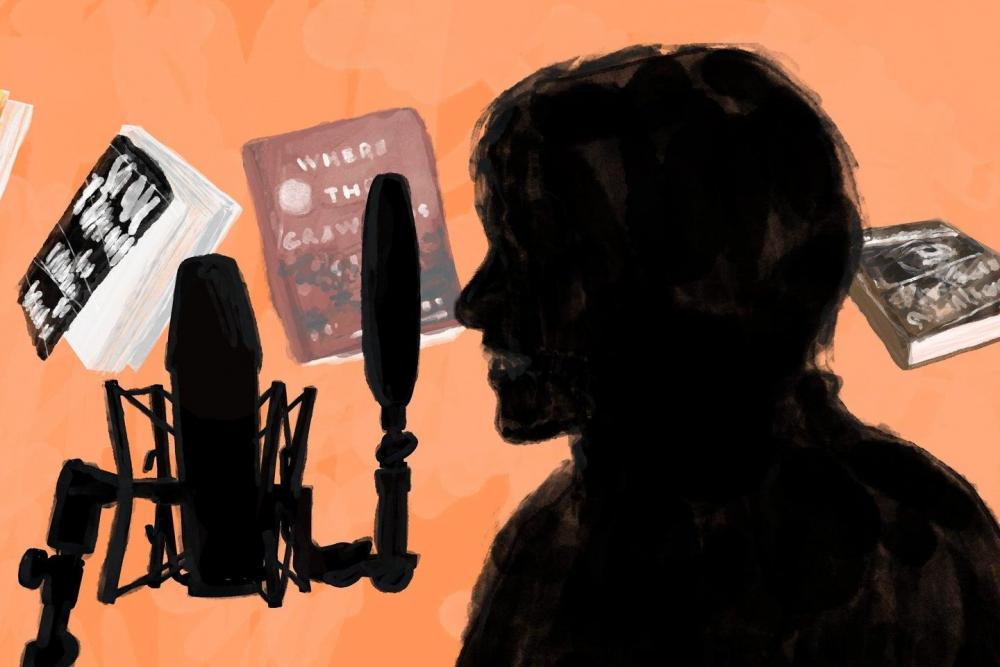
“I Probably Modeled Him on Something I’d Heard on The Wire”
The audiobook industry is collectively squirming through the cultural debate on representation and casting.
BY LAURA MILLER
Twenty years ago, Grover Gardner began narrating a series of comic mysteries whose title character is a white lawyer named Andy Carpenter. In the series—written by David Rosenfelt—Carpenter also has a partner, Willie Miller, who’s a Black ex-con, which means Gardner had to voice Miller too. Back then, he hardly gave any thought to the fact that he was a white narrator voicing a Black man. “I probably modeled him on something I’d heard on television, on Hill Street Blues, or The Wire,” Gardner said. Today, 14 books later, he’s still voicing Willie—but he’s changed his approach. “I’d think very hard about doing that kind of accent now,” he said.
In an era of heightened sensitivity to issues of representation and misrepresentation, it’s no longer acceptable to cast a white actor as a character of color in a movie or TV show. But audiobooks play by different rules. It’s customary now in the audiobook business to try to match a book’s narrator to the gender, race, and sometimes sexual orientation of a novel’s author or main character. Yet most novels feature characters with an assortment of different backgrounds, and this can require narrators to voice characters with identities very different from their own.
When audiobooks first rose to popularity in 1980s, the field was overwhelmingly white. Gardner, who has been an audiobook narrator for four decades and also works as a producer, recalls that, for the first couple of decades of his career, “the whole industry was geared toward middle-aged white businessmen” who listened to “books on tape” while on the road for work. There were hardly any narrators of color, and few female narrators back then, Gardner said. “I recorded Scott Turow’s [1990 novel] Burden of Proof. The narrator of that book is a Latino lawyer,” he told me. “I did it. We did whatever they sent us back then. But I wouldn’t do that book today. You would find a Latino narrator to do it.”
Apart from the amused response to the cartoonish accents Ronan Farrow rolled out when narrating the audio version of his 2019 exposé Catch and Kill, the audiobook world has so far been largely free of the sort of scandals that have triggered reckonings about representation in other creative industries, like magazine publishing and television. This is partly because it’s a low-profile, unglamorous field that doesn’t attract a lot of attention from the press. But many who work in the industry still feel the tensions around casting acutely. Amid a publishing boom in literature by writers of color, nonwhite narrators are being offered more work than they once were. Meanwhile, like most narrators, they find themselves getting asked to voice marginalized characters from backgrounds that bear no resemblance to theirs. January LaVoy, a biracial narrator who identifies as Black, said that cross-cultural audiobook narration is freighted in different ways for white narrators and narrators of color. “For many white narrators, it’s difficult because of fear [of backlash]. For many narrators of color, it’s difficult because of the weight of responsibility.” The industry is grappling with these issues daily. “It’s difficult for everyone,” LaVoy said.
Although some publishers have audiobook divisions, they usually function separately from the print division, and the audio rights for many titles get sold to separate companies such as Brilliance or Blackstone. The producer of an audiobook, who is employed by the publisher, acquires the rights and oversees casting and other big-picture decisions, such as opting for multiple narrators on a novel that often switches points of view.
Michele Cobb, a producer and the executive director of the Audio Publishers Association, told me that she and her colleagues have tried to figure out how they can sensitively ask narrators to provide producers with information about their backgrounds—such as gender identity, sexual orientation, and disability—that can be helpful when casting. Cobb explained that it’s an ongoing challenge to cast appropriate narrators for books by authors of color, while avoiding typecasting. In her own company, which publishes romance audiobooks, “I’ve definitely had authors come back and say, ‘Well, this character is white so I wouldn’t go with a Black narrator,’ ” a choice she feels obliged to respect.
Traditionally, both a director and an engineer, usually both freelancers, work on the recording with the narrator. Director Simone Barros outlined an exhausting list of tasks to me, from making sure the narrator doesn’t skip or add words to researching accurate regional pronunciations and maintaining continuity. “You can get to the last page of the book, and it will mention that a character had a German accent the whole time,” said Barros, speaks with the mile-a-minute lucidness of a person whose job is anticipating every contingency. Barros is of Cabo Verdean descent and identifies as Black.*
In the case of some first-person narrators, such as the one in Charlie Kaufman’s Antkind, an audiobook Barros directed, the book is “written so much within the perspective of the first person that the ethnicity of other characters are specifically heard from the narrator’s perspective of them. More specifically in Antkind, the author’s very point is this shifting, mutable and even unreliable perspective, to shine a light on how too often minority characters go unseen, or only seen or heard through a bias cipher.” But with a book written in the third person, she and her narrator will work up a full voice profile—a cache of recorded dialogue and biographical information—for each speaking character. That way, if, say, a villain appears in a novel’s first few pages only to disappear for several chapters, the narrator and director can remind themselves of what he sounds like. Such profiles are particularly helpful with recurring characters in sequels and series, which may be recorded years later.
In the past, it was largely left up to the professionals behind the scenes to anticipate and head off any problems. Ten years ago, it wasn’t uncommon for a book’s author—the person most intimately acquainted with a title—to have no input at all in the audiobook production. But as audiobooks became a more mainstream and high-profile format, authors began seeking more oversight. Today, writers often get the final say on casting, and are often invited to choose a narrator from a selection of sample recordings and encouraged to provide crucial information about how characters ought to sound. Nathan Harris, a Black writer whose debut novel, The Sweetness of Water, is set at the end of the Civil War, knew the accents of his multiracial cast of characters, who include freed slaves, would be a challenge. “You can go down a very precarious road with how they sound,” he said. “That’s why I didn’t want to do it myself.” His publisher presented him with an audition recording by William DeMeritt. “They told me they could go in all sorts of different directions if that’s what I wanted,” Harris said. “But he just nailed it.”
Over the past few years, the crew of professionals who work on a given book has increasingly been whittled down to a bare minimum, putting greater pressure on narrators’ judgment—even though a narrator, who is in most cases a freelance contractor, doesn’t have much time to carefully screen a book for potential stumbling blocks before agreeing to the job. The exploding demand for audiobooks with the advent of digital downloads and, most recently, an increasing number of home studios built during the pandemic also means that more narrators have ended up doing most of the production work and key decision-making on their own.
Some narrators say they now turn down jobs when they feel unsure about voicing major characters. Cassandra Campbell—narrator of, among other things, Delia Owens’ bestseller Where the Crawdads Sing, a novel featuring several Black supporting characters—recalled narrating the first two in a series of books, which made her the automatic choice for the third. But when she discovered that the third book was told from the point of view of a young Burmese boy, Campbell, who is white, bowed out. “I just didn’t feel comfortable with it,” she said.
A multitude of minor characters can turn an audio book into a minefield for its narrator. Edoardo Ballerini, who was profiled in the New York Times Magazine last year as “a go-to voice for intelligent, subtle but gripping narrations of books,” says he’s now most often asked to narrate books requiring European accents. (His father is an Italian poet, and he was raised in New York.) Still, challenges do arise. “Take a James Patterson book,” he explained. “Let’s say it’s set in New York City and the detective is hard-boiled, an Italian-American. I can do that. His partner is a feisty woman and I think I can handle that.” But then the minor characters start showing up, sometimes slotted into uncomfortably stereotypical roles: “They get in a cab and there’s the cabbie, or they run into a perp who happens to be Black, or whatever it is. You have to voice them as well. And there’s really no way for anyone to say, ‘Well, I’m not going to do this book because there are a handful of lines by an Indian cabbie.’ ”
Meanwhile, many narrators of color—extra-conscious of the weight of representation—find themselves engaging in a lot of extra, unpaid work researching characters and voices that they may ultimately decide they can’t do justice to. Recently, LaVoy bowed out on a title in a children’s series she narrates about a group of middle school students who travel the world with their eccentric professor, encountering mythical creatures from the cultures they visit. “When we did one that took place in the Pacific Northwest,” she said, “we got a Native American linguist from the Muckleshoot tribe to work with me. I felt really comfortable,” she said. “But this one particular book took place in Cuba, and it was very heavily written in Spanish,” a language LaVoy doesn’t speak fluently. When she got to a part where the whole group begins singing the Cuban national anthem, she decided to pass. “They needed someone with a different mouth,” she concluded.
A character’s accent can be an evocation of her origins and identity, but it can also be—as was the case with Apu, the Indian-born convenience-store clerk on The Simpsons, voiced by white actor Hank Azaria—a mocking caricature. (Azaria recently announced that he would no longer voice Apu and expressed a desire to “go to every single Indian person in this country and personally apologize.”) “Actors love to do accents!” Campbell told me. “It’s fun to do vocal gymnastics, but we have had a moment of recognizing that there are certain accents where you’re appropriating someone’s culture.”
The one motto that nearly every audiobook professional I interviewed repeated to me when I asked about their strategies for dealing with accents is “less is more.” Kevin R. Free—a Black theater actor who began narrating audiobooks 20 years ago and has become the voice of both a soap opera–addicted cyborg in Martha Wells’ Murderbot series and of Eric Carle’s iconic picture books (The Very Hungry Caterpillar, etc.)—laughingly recalled reporting for his very first recording session armed with a set of theatrically bold character voices, only to be told by his director: “I don’t want you to think of doing this book as doing a solo show. … There’s no reason for you to go all the way there.”* That holds especially true for cross-cultural accents. If Ballerini feels that “maybe I’m not the right person to give a voice to this particular character, let me just do it as plainly and as simply as I can. I think that’s a general trend that’s happening in the industry.”
Campbell explained that when voicing characters of color, she uses an acting technique that focuses on the character’s intentions rather than on more superficial markers of identity like accent. “What does the character want from the other person in the scene? What is the conflict of the scene? Play that fully without relying on cultural stereotypes.” In Campbell’s recording of Where the Crawdads Sing, she audibly dials the rural North Carolina accents of the Black characters further down than the accents of the white characters they interact with.
Sometimes, however, an accent shouldn’t be underplayed, because it serves a crucial role in the story. That can create conflict with the production or postproduction staff, if they’re not familiar with or sensitive to the cultural context of a book. Barros directed the audiobook of Simon Han’s 2020 novel Nights When Nothing Happened, about a family of Chinese immigrants living in Texas. The wife in the book becomes annoyed when her husband leaves an outgoing message on their answering machine pronouncing the family’s surname as “Chang,” as the Texans around them say it, rather than using the Mandarin pronunciation, which is closer to “Cheng.” When narrator James Chen’s recording went through a postproduction process called quality control, or QC, Barros and Chen received orders for “pickups” (short rerecordings edited into the final audiobook to correct errors) on every instance of the family’s name, instructing them to pronounce it the Anglicized way—as the Texans do. This was, as Barros put it, “not only totally wrong,” but a literal replication of the assimilation that so bothers the main character’s wife. In that instance, the producer backed Barros and her narrator, but that’s not always the case; January LaVoy wincingly recalled the time that, at a director’s insistence, she recorded pickups replacing her correct pronunciation of Latinx with latinks.
Deciding whether to use the Anglicized or loanword pronunciations can be fraught for bilingual performers. Emily Woo Zeller, a Chinese American narrator, has sometimes clashed with directors and QC over whether to Anglicize the pronunciation of words taken from other languages, such as tofu or kung fu. She is also one of the few narrators I spoke with who took the step of contacting the author of a book that she found objectionable. “I won’t name names,” she told me, “but it was a white author,” and the scene involved what Zeller called “misplaced comedy,” in which the author “mixed up Chinese and Japanese culture, and the comedy was about the way characters looked and the fact that wanted to do kung fu and they were Communists.” Deciding “this can’t come out of my mouth,” Zeller brought her concerns to the author, who, she said, was “very apologetic and willing to change it.”
Hers was an unusual move. Audiobook narrators tend to see their role as strictly interpretative. Their job is to convey the book from the author to the reader in a way that remains true to the author’s intent. This includes texts like classics, books whose authors can’t be appealed to for changes, and books that contain words, passages, and characters that are now deemed offensive. There also remain plenty of contemporary authors who, as Cobb tactfully put it, “haven’t caught up yet,” and narrators will continue to have to figure out how to perform those books.
For Grover Gardner, four decades in the audiobook industry have taught him that “where there’s ignorance, you fall back on the only things that you’ve seen or heard, and chances are very good that, if you’re an older person, you’re drawing on a stereotype.” He’s had to work to transform some of his ongoing roles from vocal clichés into full characters. In the case of the former convict Willie in the Andy Carpenter mysteries, for instance, he has consciously tried to lean less on an exaggerated accent as an actorly crutch. “I’ve tried to focus more on attitude,” Gardner said, “on the real person.”Correction, June 23, 2021: This article originally misstated that Simone Barros is Black. Barros is of Cabo Verdean descent and identifies as Black.
Update, June 23, 2021: This article has been updated to add additional comments by Barros about the narration and perspective in Antkind.
Correction, June 22, 2021: This article originally misstated that Kevin R. Free began narrating audiobooks five years ago. Free began narrating audiobooks 20 years ago.
How Stories Change When They Move From Page to Voice
Laura Lindstedt on the Different Ways We Read a Book
By Laura Lindstedt, translated by David Hackston
June 14, 2021To all intents and purposes, a psychoanalyst’s couch is in fact a bed—after all, it lacks a back and armrests. And yet, this item of furniture must be called a couch. Nobody would offload their traumas on a psychoanalyst’s bed unless, that is, they were in a relationship with said psychoanalyst.
In October 2019, I found myself sitting in the Silencio recording studios, headphones over my ears, reading aloud my novel My Friend Natalia, which had been published in Finland six months earlier.
“‘Natalia’ was one of my first clients to lie on her back without prompting,” I read and continued: “When I showed her round my office, which I had rented in an apartment next to my house, I told her about the couch.”
These two consecutive sentences are from the opening chapter of the novel. Reading these sentences aloud irrevocably sprained something in my brain.When one reads a book aloud as an audiobook, the visual aspects of the text all disappear. Of course, one could read the word couch, which appears in italics, in a slightly different way, perhaps by holding a short, artistic pause before the word. But this is not the same thing. Italics are not the same as a short pause.
The therapist, the book’s narrator, gives the patient the code-name “Natalia.” Under the cover of this anonymity, the therapist then proceeds to divulge intimate details of Natalia’s life to the reader, then at one point removes the inverted commas from Natalia’s name “as I might remove the safety catch from a gun”. When read aloud, this sentence is absurd: the listener cannot hear the inverted commas around Natalia’s name.
*
Let’s be clear: I am very skeptical about the practice of turning works of literature into audio recordings.
If audiobooks become the primary way in which we interact with books, it would be strange if at some point this did not have a direct impact on how people write literary works.
Will writers—either consciously or subconsciously—start writing books so that they sound good when read aloud? The succinct speech between Me (the writer) and You (the reader) works well when spoken aloud, so the current appetite for autofiction is unlikely to dwindle any time soon. A linear narrative, in which we already know (or think we know) something about the end point, is also easy to listen to. For this reason, celebrity autobiographies and so-called true stories make for successful audiobooks.
However, complex narrative structures, shifting perspectives, narrative polyphony, long, meandering sentences and the visual aspects of a text find themselves increasingly under threat from a medium that relies solely on hearing. If linear narrative becomes the only acceptable form of complex literary expression, our thoughts will be the poorer for it. Imaginary worlds and possibilities will shrink because such worlds and possibilities are not “content” that can be detached from “form,” they are not statements, suggestions or questions isolated from their rhetorical devices.*
That being said, I’m not a militant opponent of audiobooks. To my mind, it is simply important to recognize that there is a significant difference between the printed book and the audiobook. Written material turns into vibration, letters become sound waves. They always come from a concrete source that guides our interpretation, a source that is completely different from the reading process heard through our “inner voice.”
A new element appears between the book and its recipient: a voice that shapes how we receive the text. It is a sound born of a human body in a unique way and that is (generally) readily identifiable as the voice of a man or a woman.
In the audiobook of My Friend Natalia, this unavoidable fact becomes a poetic problem in its own right. Throughout the text, I have scattered conflicting clues as to the sex of the therapist, the novel’s first-person narrator, but I was careful never to define the therapist as either a man or a woman. With certain exceptions, in many languages a writer and a translator can easily disguise or at least avoid the matter of the narrator’s sex. A writer can also play with this ambiguity, as is the case in my novel My Friend Natalia.
Some readers have been convinced that the narrator is a man, others have considered the therapist a woman. Several readers have told me that their perception of the matter changed as they were reading. Readers always read a text through the prism of their own experiences, preconceptions and cultural stereotypes.
For this reason, I wanted to read the Finnish audiobook of My Friend Natalia myself. I am a woman, but because I am the book’s author my voice is above all an authorial voice, and in this way I feel I managed to resolve the dilemma described above.But my relief was somewhat premature. I was once again forced to confront this matter in early 2021 when Penguin Random House Audio began to produce the English-language audiobook of David Hackston’s translation of My Friend Natalia (W.W. Norton/Liveright).
PHR Audio’s producer kindly sent me a number of audio samples to listen to. All these samples were very professional and of the highest quality, but still they were unsuitable for my novel’s narrator. I started to lose hope. Was it at all possible to find an actor whose voice was neither that of a man nor a woman, a voice that wasn’t too young as it should be a voice that conveys the therapist’s wealth of professional experience? The voice also needed dash of pompous embitterment, stemming from the fact that nobody seems to value the therapist’s subtle genius.
But we were lucky, and eventually we found an excellent voice, that of the actor TL Thompson, who identifies as non-binary and whom I chose as the English-language reader for My Friend Natalia.
Thompson’s voice is characterful, mesmerizing and unforced. To my own ear, Thompson’s voice sounds more masculine than feminine, or perhaps it’s the whisky baritone of an elderly lady. However, the voice is not remotely “gender-neutral,” a voice-type that we tried to look for at first and whose very existence I have seriously begun to doubt. Thompson’s voice made every sentence oscillate between the two. I have not written such oscillation into my novel, let alone a gender-neutral narrator’s voice: the question of the therapist’s identity opens up—if, indeed, it opens up at all—when readers find themselves indulging in assumptions that the text does not affirm.
I can say quite whole-heartedly that I love Thompson’s reading. Yet in the same breath, I must reiterate what I have already said: an audiobook is a different entity from a printed book.
*
For me, the act of interpretation is specifically that of thinking with the book. It requires stops, pauses, flicking through the pages, making notes in the margins. The book takes on markings, layers that are missing from digital products, which are perpetually new.
We can browse with our eyes but not with our ears, as my partner, who works with sound, would put it. The ear is more sensitive to chaos and clamor than the eye. Sound operates like a one-directional timeline, a surge that is hard to control. A detailed auditive perception of a large space is simply impossible.It is to these very layers that I return when trying to form an understanding of the kind of book I am reading. I can easily locate markings I have made by flicking through a book, even if it is a book I read 20 years ago.
The various temporal strata of my home library provide a shadow story of what has touched me and who I have been throughout my reading life. Last summer I awoke to the immeasurable value of these little scribblings when going through my grandmother’s estate after she died at the age of 100. From the collection of religious books, treatises and notebooks, I saved those in which my grandmother had left some kind of mark—and exclamation mark, a line under a section of text, or a Biblical verse in the margin. These markings reveal not only what touched her and who she was; they also say a lot about where I have come from, what kind of supra-generational reality I carry with me.
New works from Dr. Martin Luther King Jr.’s archives will finally be published, starting next year.
By Dan Sheehan
June 23, 2021, 11:21amThe publishing giant HarperCollins has reached an agreement with the estate of Dr. Martin Luther King Jr. to acquire world publishing rights to the late Civil Rights leader’s entire archives—a collection which contains some of the “most historically important and vital literature in American history.”
As reported by Publishers Weekly earlier today< read below > , the mega-deal gives HarperCollins world rights “to publish new books from the archives across all formats, including children’s books, e-books, audiobooks, journals, and graphic novels in all languages.”
Given the significance of the books in question, it seems strange that a deal like this one wasn’t made sooner, but this is welcome news nonetheless.
More welcome still is HC’s assertion that it will hire a dedicated archivist to oversee the project, and “engage prominent Black scholars, actors, artists, performers, and social activists to help bring Dr. King’s works to life.”
Way back in 1958, HC’s predecessor company Harper & Brothers published Dr. King’s very first book, Stride Toward Freedom: The Montgomery Story, which detailed the 1955–56 Montgomery bus boycott and described the conditions of African Americans living in Alabama during the era.
The first MLK titles to be published by HC are scheduled to drop in January 2022, to coincide with Martin Luther King Jr. Day.
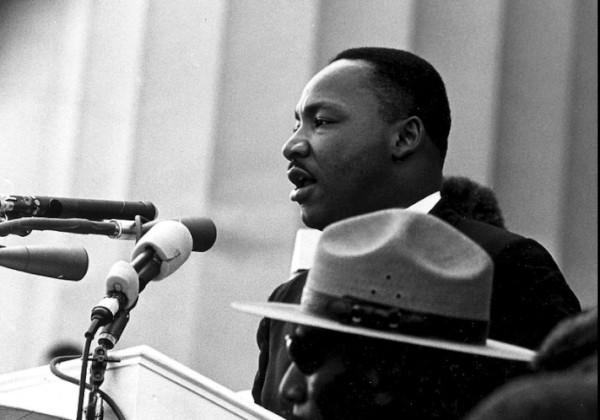
HC Inks Deal with MLK Jr. Archives
By Rachel Deahl | Jun 23, 2021In an agreement with the estate of Dr. Martin Luther King, Jr., HarperCollins has acquired world publishing rights to the archives of the civil rights leader. The publisher said the collection features some of the "most historically important and vital literature in American history."
Judith Curr, president and publisher of HarperOne Group, negotiated the deal with Amy Berkower, president, Writers House and agent for the King estate; and Eric D. Tidwell of Intellectual Properties Management, manager of the King estate. The deal gives HC world rights to publish new books from the archives across all formats, including children’s books, e-books, audiobooks, journals, and graphic novels in all languages.
HC said it plans to hire an archivist who will oversee the material in the archive and make it "available to all HarperCollins editors globally." HC added that it intends to "engage prominent Black scholars, actors, artists, performers, and social activists to help bring Dr. King’s works to life."HC also has history with King. A predecessor company to HC, Harper & Brothers, published King's first book, Stride Toward Freedom: The Montgomery Story, in 1958.
All current his King titles, including those published by Beacon Press, will continue to be publishing by their current rights holders.
“We are thrilled to be the official publisher of Dr. Martin Luther King Jr.’s archives,” said Curr in a statement. “We view this as a unique global publishing program."
The first King titles to be published by HC are scheduled to drop in January 2022, coinciding with Martin Luther King Jr. Day.
SOURCE ARTICLE
Kobo Emerging Writer Prize, Books for Palestine, and an Intro to Booktok: This Week in Book News
https://kobowritinglife.com/2021/06/25/kobo-emerging-writer-prize-books-for-palestine-and-an-intro-to-booktok-this-week-in-book-news/
-


Following Naver's $600 million acquisition of Wattpad earlier this year, Wattpad and Naver's Webtoon are merging their film and television production studios under the name Wattpad Webtoon Studios. Aron Levitz, who previously oversaw Wattpad Studios, will serve as president of combined group.
"One of the best things about Wattpad Webtoon Studios is that we’re format agnostic, we have incredible IP with built-in fans in every genre, and stories that already travel across borders," said Ashleigh Gardner, deputy general manager for publishing of Wattpad Webtoon Studios. "We have access to some of the biggest libraries of stories and digital comics on the planet, with stories in every genre you can imagine."
Naver is supporting the new studio with an investment of $100 million in content development and production financing. The studio will use data to determine the most popular stories and attempt to ascertain their potential for success in the broader marketplace as TV shows, films or books.
"This commitment reflects Naver’s confidence in our team’s ability to create incredible books and industry-leading entertainment that fans will love in any format," Gardner said, adding that the formation of the studio and investment will enable Wattpad to move faster, to adapt stories for new formats and audiences.
-

OverDrive to Acquire Kanopy
June 9, 2021
2021, PRESS RELEASES
OverDrive Library and College Partners to Benefit from Kanopy’s Acclaimed Video Catalog, Platform and Apps
CLEVELAND – June 9, 2021 – OverDrive, the leading digital reading platform for libraries and schools worldwide, announced today that it is acquiring Kanopy, a leading video streaming service for public and academic libraries.
OverDrive to Acquire Kanopy - OverDrive
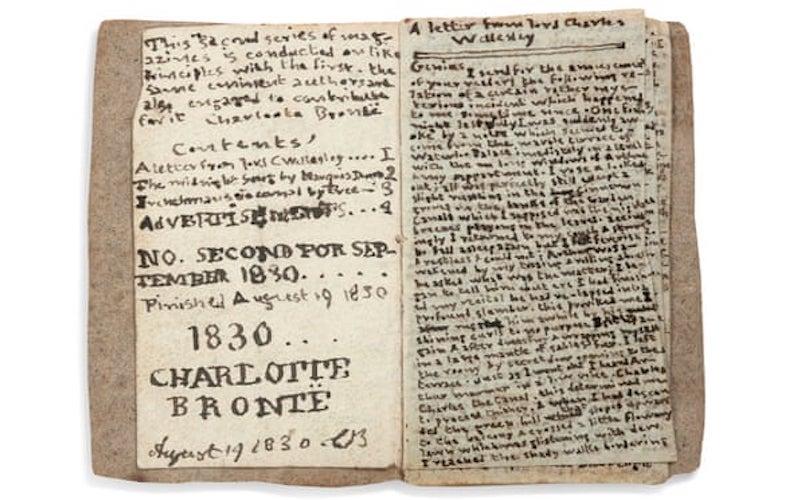
Brontë enthusiasts have banded together to stop Sotheby’s from auctioning off rare manuscripts.
By Walker Caplan
June 22, 2021, 1:37pm
Last month, Sotheby’s announced that a collection of rare Brontë-affiliated manuscripts, most notably a volume of 31 handwritten poems by Emily Brontë, was slated for auction along with other manuscripts by Robert Burns and Walter Scott. Now, Sotheby’s has agreed to delay their auction, as a group of British libraries and museums have announced their attempt to purchase and preserve the collection for the public. The time frame of the auction delay has not been publicly announced.
The aforementioned manuscripts are all part of a private library, the Honresfield Library, collected and kept in the 1800s by Alfred and William Law; after Alfred’s nephew, inheritor of the library, died, the collection disappeared from public view and was thought to be lost to the ages.
-

BEFORE YOU READ THE ARTICLE BELOW, I have a question
Where are the publishers for thoughts from non white communities in the usa, that are negatively biased toward others?
THE GREAT RIGHT-WING PUBLISHING DIVIDE WIDENS
Mike Pence and Jared Kushner are writing for establishment players, as Mark Meadows and Peter Navarro head to a conservative upstart. So where does Donald Trump end up?
BY CALEB ECARMA
JUNE 17, 2021
Right-wing authors struggling to ink book deals—like Missouri senator Josh Hawley, whose deal with Simon & Schuster was nixed after he seemingly cheered on the January Capitol riot—can take heart: A pair of conservative publishing executives have united to bring them hope. Louise Burke, a former top publisher at Simon & Schuster, and Kate Hartson, the former editorial director at Hachette Book Group’s Center Street imprint, are launching All Seasons Press, a company that, by its own definition, is “open to welcoming those authors who are being attacked, bullied, banned from social media, and, in some cases, outright rejected by politically correct publishers.”
Uproar over right-wing figures’ publishing deals has come to a head of late. In April, about 14% of Simon & Schuster employees signed a petition calling for Mike Pence’s book deal to be dropped, saying that publishing the former vice president amounted to “legitimizing bigotry.” (Simon & Schuster CEO Jonathan Karp ultimately ignored the petition request, writing in a letter to staff: “We come to work each day to publish, not cancel, which is the most extreme decision a publisher can make.”) Burke told the Wall Street Journal that she is “increasingly concerned and somewhat outraged about what’s going on in terms of free speech and free press” and fears the “canceling of voices that…are meeting resistance from mainstream publishers, particularly former [Donald] Trump administration members.”
While Burke noted that there is already “competition” in the conservative publishing industry, which includes Regnery and Random House’s Crown Forum imprint, she still believes there’s “room for another publisher, especially one that will be as independent as we are.”
Already, All Seasons Press has illuminated an interesting dividing line in terms of the Trumpers it plans to publish. There are those like former Trump chief of staff Mark Meadows, former White House adviser Peter Navarro, and ex-Rush Limbaugh producer James Golden who have migrated to the publisher, according to the Journal. (Hawley, for his part, found an alternative publisher in Regnery.) In an email to the outlet, Navarro claimed the publishing world has “devolved into a Cancel Culture, Virtue Signaling cesspool,” adding, “it is refreshing to see a new publishing house emerge willing to print books such as my forthcoming volume in the Fall that will speak truth to power.” Then there are those like Pence and Jared Kushner, whose deal with Broadside Books, an imprint of HarperCollins, was announced this week—the names so recognizable that publishers have seemingly calculated that the headache of printing their work is, financially speaking, worth the hassle of potential blowback.
Still up in the air is Donald Trump himself. The former president claims he is “writing like crazy,” working on a memoir of his time in office. He also claims he’s rejected offers from two unnamed major publishing houses. But sources at Penguin Random House, Hachette Book Group, HarperCollins, Macmillan Publishers, and Simon & Schuster—the Big Five publishers—recently told Politico they were unaware of any such offers. The outlet also reported that publishing executives are concerned that signing a deal with Trump could result in a staff uprising and other signed authors walking out in protest.
Books about Trump and his presidency, however, are still in demand. Michael Wolff’s Landslide: The Final Days of the Trump Presidency will be released on July 27, and Wolff said on Twitter that an excerpt of the book will appear in a New York magazine cover story on July 5. The book’s publisher, Henry Holt and Company, described it thusly: “In Landslide, Wolff closes the story of Trump’s four years in office and his tumultuous last months at the helm of the country, based on Wolff’s extraordinary access to White House aides and to the former president himself.”
The Great Right-Wing Publishing Divide Widens | Vanity Fair
-
-
Superman will be Black
VIDEOMY REPLY
He makes a few points.
1st- news to me, I didn't know superman is going to be negro. I concur, old characters develop followings over time. King Arthur is not gay. If someone tried to make it where he was sleeping with lancelot it will be rejected.
2nd- he is correct that initially black comic book characters have made money. But he misses DC/Warner bros problem.
Take away Milestone, take away Marvel characters like Blade or the XMen or Spider man that now all are under Disney's roof. Name the top 5 DC black characters?
Warner bros. see's money in courting the non white male. But DC Comics don't have a black panther/blade/storm/Luke Cage/Moonstone/Psylocke. so...
3rd Both DC or MArvel are guilty of trying to court non white audiences by forcing a race change on a character. Look at what marvel did with captain marvel, a character that has a long complicated history of changes, and made a muslim girl captain marvel while captain marvel is still the blond haired woman flying in the stars...
4th- As Anthony McKay said, I am paraphrasing, I Am not playing Falcon, Falcon is being played by me. I think sometimes you get a personality like Momoa playing a lower character like Aquaman. You see the same thing with Deadpool/Doctor Strange/Black Widow/Nick Fury... as the actors who played them dominate their perception but that is cause none of them were well known outside comic circles beforehand, and the actors who portray them have a large media profile or following before them. That is why Downey Jr was able to dominate Iron man in a way he wasn't sherlock holmes. I never forget people saying with the first film, what is this martial arts? I have to admit the street fighting took me by surprise. I never forget how some fans ecried when Jackman was in his last wolverine depiction. Wolverine is not dead, but the audience is influenced.
I have to admit the street fighting took me by surprise. I never forget how some fans ecried when Jackman was in his last wolverine depiction. Wolverine is not dead, but the audience is influenced.
5th- I end with , the video creator is correct, the goal is not to make money. The goal is to supercede the money made and that is where the problem resides. If Warner Bros/DC focused on a Black Lightnin project, as he is their first black titular character. It will make money but it will not make superman money and that is what the studios fail to realize is their problem.
Going forward, an issue about new characters. I argue that DC spent too much time rebooting batman/superman and gave to little time to bringing in new characters. why is it: martian manhunter/green arrow/hawk woman or hawkman/black canary/mister terrific not have a film yet? These characters are as old and still remembered, I argue DC or MArvel is missing a trick by focusing on a narrow set of characters. TO be blunt, huntress/black canary warrant a standalone movie, that birds of prey was premature. Marvel's problem is simple, can they move on from iron man/captain america. Can Marvel let characters die and stay dead, that is the question. The avengers don't need captain america or iron man or vision or black widow to come back. I think they should all stay dead. The black widow movie is a temporal prequel. I think they need to respect the world they created and make Shuri black panther. It makes sense. Tchalla died by some rare space disease or whatever. Make sHuri the black panther. harry potter fans still complain about gambon as dumbledore -
The problem with Lord of the Rings and most fictions based off of books in the USA is a cross section of various elements.
1. Media firms in the USA feel obliged to cater to a pan - multi racial concept, to evade the label of negative bias. So, if all types of human beings must be present then most fictions have to be modulated for it.
2. Media firms in the USA prepare for Public Domain by intentionally changing characters so that the version of the character is purposefully other than the character that will go into the public domain.
3. Media firms are unconvinced that the buyers of subscriptions or buyers of film tickets favor new stories over old stories, so they must use old stories as the basis of their activities while doing points 1 and 2.
These three points is the problem for all media firms in the USA.
Now for the artists. Artists, especially the sub class writer, naturally makes fiction based on our internal desires. To rephrase through example, if a male writer writes a story absent a lesbian character in it, or a woman who successfully defends herself, it can be certain that media firms in the USA will desire to change the story if adapted into another medium to include said two characters. Why? Point number 1.
The best example is am*zon prime's interpretation of Tolkien's second age.
The reviews below make one thing clear. This has nothing to do with Tolkien's lord of the rings. This is for lack of a better term, like an adoptable, that doesn't know it.
TEASER
TRAILER
REVIEW 1
REVIEW 2
REVIEW 3
REVIEW 4
REVIEW 5
REVIEW 6
REVIEW 7
REVIEW 8
OTHERS
NOTHING TO SEE , THE SAD TALE,
-
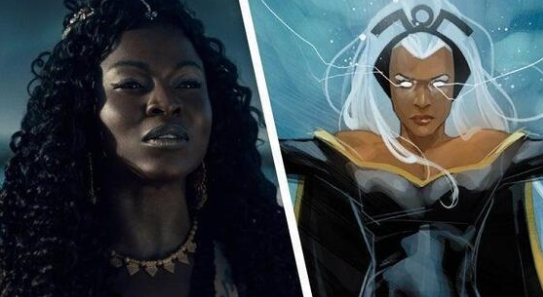
Its funny, somewhere else in the world wide web some one referred to Yetide Badaki , who portrayed an interpretation of Yemanja in the show "American Gods", who said she wants to play Storm of the X-Men.
BUT, circa 2015,. a Black woman named Maya Glick < https://aalbc.com/tc/blogs/entry/92-story-collections/?tab=comments#comment-61 > ustilized Kick starter to make her own successful Storm inspired independent film
Now, if the Black community in the USA has a member who owns the largest film studio in the USA < https://aalbc.com/tc/profile/6477-richardmurray/?status=1835&type=status > Then I don't comprehend what Badaki is waiting for. Black individuals own movie studio lots, not all used. A Black woman, who to my knowledge has made less money than Badaki, has already figured out how to finance her own short film. What is the hold up?
As I said previously in this very community. The BlackWood always existed. The problem is, what do black individuals want from the Black film industry? Is it respecting our unique relationship to the film industry < SOUTH SIDE HOME MOVIE PROJECT > which is part of film industry started in the late 1800s < LINKS TO EXAMPLES OR CONTENT > ? OR do is it nothing from the Black film industry and rather participation in the White film industry commonly called Hollywood? I say some black folk want the former, others want the latter. And... that is fine. But, when Black people talk about what they want, they have no need to ask, unless they are asking whites in Hollywood, cause they can create today.
-
In this heat... you have to pay me money to get into a suit like this. I have been fortunate. I have seen offline, OFFLINE:) a mecha <stilts everybody>, a transformer, who can be rolled <if only he could carry a small engine:) in the suit >, a glittering princess that literally had children following her like slaves <I am not kidding, i never share photos or videos of my life so...> I have seen some great cosplay offline. I saw someone be a huge muppet and yes, they did it the whole day <they had so much sweat when they took of that helmet... not me man>
the following is online. I never saw this with my eyes.
Oh darth

2:02 the breasts on that woman:) amazing the power of being taped, the power of cosplay environments. that is why the chinese government banned alot of that kind of cosplaying and yes I have seen how backed up some men are when a woman cosplays in something similar.
-
Original comment
Pioneer1 after reading greg's comment, it seems his solution is in two parts: 1 every black woman must be married 2 every black man must be a loving financially able partner.
The problem is, the assumptions.
1. that a fiscally poor or unemployed child or adult from a happy home or part of a happy home will not roam the streets or commit illegalities or commit crimes for profit.
2. that unmarried parents are by default bad parents. That is another false assumption.
IN AMENDMENT
In my view, he offers solutions he thinks will work but they are flawed for the scope of the problems is beyond the solutions he offers.
PEople forget many black people or people in the usa in general moonshined, not because they came from broken homes or bad homes or unpleasant homes but for money. Black people from blues players to migrant farmers , didn't try hustles, try illegalities or crimes cause of some learned home traits. this was their financial reality coming to bear. HAttie mcdaniel didn't want to be a maid in real life. many black people who don't want jobs that are to be blunt, going no where, but don't have a legal financial path use others, and in the world of illegality is always crime.
And I know everyone knows the following or before, but I must say, people forget, the concept behind social welfare programs isn't to be a constant. The idea behind them is that the private will financially grow in time and absorb people in the welfare state. I think many people in the world forget the point of the welfare state isn't to be a constant in a person's life but to be a pillow on the way down so one doesn't commit illegalities in fiscal desperation but also can wait for the private sector to get better. The problem is, all industries or firms have ups and down and some of them have deep downs where they are not recovering. The problem in the usa from a labor perspective is simple, the usa has been losing favorable pay jobs for decades and hasn't replaced them. Yes, tech jobs exist but tech jobs will never replace what the automotive industry was able to provide before its heavy mechanization. Tech jobs will never replace what the farming industry before its heavy mechanization was able to provide. Tech in the usa has made human labor not as needed, and thus fewer jobs. Thus the welfare programs role as a buffer to extreme poverty has been vital to the usa in all earnest. I add to the western european governments as well. I hear trucking is getting its turn. that is millions of truckers in humanity are about to join the millions of former farmers/auto workers. It isn't that the welfare state is negative, it is that , it is needed. but the private sector has to bring the workers back in.
-
I wonder how many Black women have reached orgasm before 30 while interacting with a black man. The only way is to ask all black women and no one has done that for any question. all polls are merely averages. But I bet most black women have never reached an orgasm in their entire life time side any man and that includes sadly, my fellow Black men.
The article below deals with a film that is a fiction about a woman on a quest to have an orgasm who never did before and is a mother of adult children and the wife of a deceased man.
But I think the topic is true. Many of my fellow males, including me, can be insensitive to women in intimate scenarios and that leads to women not being pleased. I know for sure, through offline talks that many men, not all but many, believe all every woman needs is a thick penis in them to be aroused and that simply is a lie.
But it is a lie that many men have been taught to be truth by other men, especially their elders in their homes.
But I wonder, I think if every black woman can say by her third intimate experience with a black man she had an orgams, regardless of when that will be a nice communal achievement of change.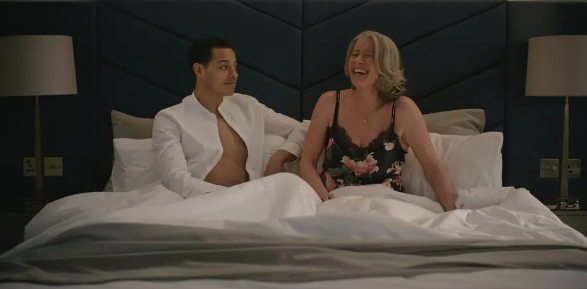
Emma Thompson and the Challenge of Baring All Onscreen at 63
The actress made the choice to disrobe. Still, she says, it was the most difficult thing she’s ever done in her four-decade career.By Nicole Sperling
June 15, 2022
It’s the shock of white hair you notice first on Emma Thompson, a hue far more chic than anything your average 63-year-old would dare choose but one that doesn’t ignore her age either. It’s accompanied by that big, wide smile and that knowing look, suggesting both a wry wit and a willingness to banter.And yet, Thompson begins our video call by MacGyvering her computer monitor with a piece of paper and some tape so she can’t see herself. “The one thing I can’t bear about Zoom is having to look at my face,” she said. “I’m just going to cover myself up.”
We are here across two computer screens to discuss what is arguably her most revealing role yet. In the new movie “Good Luck to You, Leo Grande,” directed by Sophie Hyde, Thompson is emotionally wrought and physically naked, and not in a lowlight, sexy kind of way.
Thompson plays Nancy, a recently widowed, former religious schoolteacher who has never had an orgasm. At once a devoted wife and a dutiful mother harboring volumes of regret for the life she didn’t live and the dull, needy children she raised, Nancy hires a sex worker — a much younger man played by relative newcomer Daryl McCormack (“Peaky Blinders”) — to bring her the pleasure she’s long craved. The audience gets to follow along as this very relatable woman — she could have been your teacher, your mother, you — who in Thompson’s words “has crossed every boundary she’s ever recognized in her life,” grapples with this monumental act of rebellion.
“Yes, she’s made the most extraordinary decision to do something very unusual, brave and revolutionary,” Thompson said from her office in North London. “Then she makes at least two or three decisions not to do it. But she’s lucky because she has chosen someone who happens to be rather wise and instinctive, with an unusual level of insight into the human condition, and he understands her, what she’s going through, and is able gently to suggest that there might be a reason behind this.”
Thompson met the challenge with what she calls “a healthy terror.” She knew this character at a cellular level — same age, same background, same drive to do the right thing. “Just a little sliver of paper and chance separates me from her,” she quipped.
Yet the role required her to reveal an emotional and physical level of vulnerability she wasn’t accustomed to. (To ready themselves for this intimate, sex-positive two-hander that primarily takes place in a hotel room, Thompson, McCormack and Hyde have said they spent one of their rehearsal days working in the nude.) Despite a four-decade career that has been lauded for both its quality and its irreverence and has earned her two Academy Awards, one for acting (“Howards End”) and one for writing (“Sense and Sensibility”), Thompson has appeared naked on camera only once: in the 1990 comedy “The Tall Guy,” opposite Jeff Goldblum.
She said she wasn’t thin enough to command those types of skin-baring roles, and though for a while she tried conquering the dieting industrial complex, starving herself like all the other young women clamoring for parts on the big screen, soon enough she realized it was “absurd.”
“It’s not fair to say, ‘No, I’m just this shape naturally.’ It’s dishonest and it makes other women feel like [expletive],” she said. “So if you want the world to change, and you want the iconography of the female body to change, then you better be part of the change. You better be different.”
For “Leo Grande,” the choice to disrobe was hers, and though she made it with trepidation, Thompson said she believes “the film would not be the same without it.” Still, the moment she had to stand stark naked in front of a mirror with a serene, accepting look on her face, as the scene called for, was the most difficult thing she’s ever done.
“To be truly honest, I will never ever be happy with my body. It will never happen,” she said. “I was brainwashed too early on. I cannot undo those neural pathways.”
She can, however, talk about sex. Both the absurdities of it and the intricacies of female pleasure. “I can’t just have an orgasm. I need time. I need affection. You can’t just rush to the clitoris and flap at it and hope for the best. That’s not going to work, guys. They think if I touch this little button, she’s going to go off like a Catherine wheel, and it will be marvelous.”
There is a moment in the movie when Nancy and Leo start dancing in the hotel room to “Always Alright” by Alabama Shakes. The two are meeting for a second time — an encounter that comes with a checklist of sexual acts Nancy is determined to plow through (pun intended). The dance is supposed to relieve all her type-A, organized-teacher stress that’s threatening to derail the session. Leo has his arms around her neck, and he’s swaying with his eyes closed when a look crosses Nancy’s face, one of gratitude and wistfulness coupled with a dash of concern.
To the screenwriter, Katy Brand, who acted opposite Thompson in the second “Nanny McPhee” movie and who imagined Thompson as Nancy while writing the first draft, that look is the point of the whole movie.
“It’s just everything,” Brand said. “She feels her lost youth and the sort of organic, natural sexual development she might have had, if she hadn’t met her husband. There is a tingling sense, too, not only of what might have been but what could be from now on.”
Brand is not the first young woman to pen a script specifically for Thompson. Mindy Kaling did it for her on “Late Night,” attesting that she had loved Thompson since she was 11. The writer Jemima Khan told Thompson that she had always wanted the actress to be her mother, so she wrote her a role in the upcoming film “What’s Love Got to Do With It?”
“I think the thing that Emma gives everybody and what she does in person to people, and also via the screen, is that she always somehow feels like she’s on your side,” Brand said. “And I think people really respond to that. She will meet you at a very human level.”
The producer Lindsay Doran has known Thompson for decades. Doran hired her to write “Sense and Sensibility” after watching her short-lived BBC television show “Thompson” that she wrote and starred in. The two collaborated on the “Nanny McPhee” movies, and are working on the musical version, with Thompson handling the book and co-writing the songs with Gary Clark (“Sing Street”).
To the producer, the film is the encapsulation of a writer really understanding her actress.
“It felt to me like Katy knew the instrument, and she knew what the instrument was capable of within a few seconds,” Doran said. “It isn’t just, over here I’m going to be dramatic. And over here, I’m going to be funny, and over here I’m going to be emotional. It can all go over her face so quickly, and you can literally say there’s this feeling, there’s this emotion.”
Reviewing “Leo Grande,” for The New York Times, Lisa Kennedy called Thompson “terrifically agile with the script’s zingers and revelations,” while Harper’s Bazaar said Thompson was “an ageless treasure urgently overdue for her next Oscar nomination.”
The obvious trajectory for a film like this should be an awards circuit jaunt that would probably result in Thompson nabbing her fifth Oscar nomination. But the film, set to debut on Hulu on Friday, will not have a theatrical release in the United States.
Thompson doesn’t mind. “It is a small film with no guns in it, so I don’t know how many people in America would actually want to come see it,” she said with a wink.
That may be true. But more consequently, because of a rule change by the Academy of Motion Picture Arts and Sciences that reverts to prepandemic requirement of a seven-day theatrical release, “Good Luck to You, Leo Grande” is not eligible for Oscar consideration, a reality that the director Sophie Hyde is not pleased with.
“It’s really disappointing,” Hyde said. “I understand the desire to sort of protect cinema, but I also think the world has changed so much. Last year, a streaming film won best picture.” She argued that her film and others on streaming services aren’t made for TV. They are cinematic, she said, adding, “That’s what the academy should be protecting, not what screen it’s on.”
Thompson, for one, seems rather sanguine about the whole matter. “I think that, given the fact that you might have a slightly more puritanical undercurrent to life where you are, that it might be easier for people to share something as intimate as this at home and then be able to turn it off and make themselves a nice cup of really bad tea,” said Thompson, laughing. “None of you Americans can make good tea.”
Nicole Sperling is a media and entertainment reporter, covering Hollywood and the burgeoning streaming business. She joined The New York Times in 2019. She previously worked for Vanity Fair, Entertainment Weekly and The Los Angeles Times. @nicsperling
https://www.nytimes.com/2022/06/15/movies/emma-thompson-good-luck-to-you-leo-grande.html
IN AMENDMENT
Again, the problem with Black people is we talk about finance in such a legal way, White people make money based on whatever it takes, not within a system. and the reality is, black people's leaders in the usa have chosen to lead the legal way for their own agenda , which doesn't help black people en large.
Lavish Money Laundering Schemes Exposed in Canada
Government officials in the province of British Columbia were aware that suspicious money was entering their revenue stream, but took insufficient steps to stop it.By Catherine Porter, Vjosa Isai and Tracy Sherlock
Published June 15, 2022
Updated June 17, 2022
VANCOUVER — Self-professed students were buying multimillion-dollar homes in the Vancouver area, with dubious sources of income, or none at all.A family of modest means transferred at least 114 million Canadian dollars to British Columbia.
Loan sharks cleaned their dirty money by giving garbage bags and hockey bags full of illicit Canadian 20 dollar bills to gamblers who took it onto casino floors.
Those were just some of the findings from a long-awaited report into money laundering in Canada’s western province of British Columbia, which after two years of testimony was finally released by a special commission on Wednesday.
Canada is a “major money laundering country,” with weak law enforcement and gaps in its laws, that put it on a list of countries that included Afghanistan, China and Colombia, according to a 2019 report by the State Department.
Few places in Canada launder as much money as the province of British Columbia, specifically the region around Vancouver, which has one of the country’s biggest underground economies. The province has earned an international reputation as a haven for “snow washing” — a term for money laundering in Canada, according to government officials.
Billions of dollars a year have been laundered there by criminals, using tactics such as gambling in casinos, buying and selling luxury goods and taking out residential mortgages that are paid off in cash installments small enough not to trigger any alarm bells.
British Columbia’s gambling industry is a cash cow for the provincial government. At its height in 2015-2016, gambling generated a record 3.1 billion Canadian dollars in revenue, about one-third of which went to the government and was used to finance hospitals and health care, community organizations and other projects.
The commission was tasked to delve deeply into how bad money laundering in the province had gotten, and whether regulatory organizations, as well as the government itself, had failed to stem it, or even worse, turned a blind eye to it. While the report found no evidence of corruption, some elected officials were aware that suspicious funds from the gambling industry were entering the provincial revenue stream, but took insufficient action to stop it. One official, the minister then responsible for gaming, took no action.
The report, more than 1,800 pages long, lays out the staggering scope of money laundering in the province and sets out more than 100 recommendations for addressing it.
The province should create an anti-money laundering commissioner and a dedicated money laundering investigation and intelligence police unit to address this “corrosive form of criminality,” the report says.
“Money laundering is fundamentally destabilizing to the society and the economy that we all want for the province,” Austin Cullen, the head of the commission and a former British Columbia Supreme Court Justice, told reporters on Wednesday. “Sophisticated money launderers have used British Columbia as a clearing house or a terminus for laundering an astounding amount of dirty money.”
The provincial government announced the inquiry in May 2019 after a series of government-sponsored reports found what the commission called “extraordinary” levels of money laundering in the real estate, casino, horse racing and luxury car sectors, fueled in part by the illegal drug trade.
Books, podcasts and news reports had raised the alarm across the country, accusing gangs in China of importing fentanyl to the Western province, and then laundering the proceeds through casinos and high end real estate, helping to further inflate housing prices in a city already deemed the most expensive for housing in the country.
A 2019 report to the province estimated that in the prior year, up to 5.3 billion Canadian dollars in laundered money flowed through real estate investments in British Columbia, inflating housing prices by as high as 7.5 percent because they were purchased with the proceeds of crime as a way to clean — or legitimize — that money.
The commission, headed by Mr. Cullen, a well-respected judge, has been a constant drum beat across the country throughout the pandemic, hearing from almost 200 witnesses, including a former premier, a government minister accused of ignoring warnings about money laundering in casinos because they offered huge revenue for the government, and police officers alleging their investigations into illicit gambling were shut down for similar political reasons.
Witnesses told the commission how one scheme worked. Rich gamblers from China flew in, wheeling hockey bags stuffed with tens of thousands of Canadian 20 dollar bills to play baccarat at private salons inside Vancouver-area casinos. The money was suspected to come from loan sharks connected to Chinese criminal gangs and drug traffickers. The loan sharks laundered their drug money by lending it to the gamblers, who would in turn repay them with clean money deposited to bank accounts in China or Hong Kong. This became known as the “Vancouver Model.”
Specialized gambling police and lottery investigators raised an alarm but found their investigations shut down or blocked, or even worse, they were fired, the commission heard. The betting limits in casinos were hiked to 100,000 Canadian dollars per hand, allowing even more money to be laundered.
British Columbia’s Attorney General David Eby, who has been campaigning against money laundering for many years, told reporters earlier this month he hoped the report would offer his government a road map for turning the province and Vancouver, “into a model for fighting money laundering instead of a center where it takes place.”
Already, the British Columbia government has taken some steps to combat the problem. It has tightened the rules at casinos, requiring gamblers to declare their source of funds and in 2019, launched a public land ownership registry, requiring certain real estate holders in the province to disclose their owners, particularly those hidden behind shell companies, trusts, partnerships and other “beneficial owners.”
Correction: June 16, 2022
An earlier version of this article incorrectly described the actions that the Cullen commission report said provincial government officials in British Columbia took to address money laundering in the gaming industry. The report said that some officials took actions that were insufficient and that one official took no action, not that all officials took no action.Catherine Porter, a foreign correspondent based in Toronto, has reported from Haiti more than two dozen times. She is the author of a book about the country, “A Girl Named Lovely.” @porterthereport
https://www.nytimes.com/2022/06/15/world/canada/canada-money-laundering.html
-
as a fellow truth telling writer, I realize it takes time for us to learn how to be commercial writers, a finesse must be learned that I haven't, that Rod Serling was able to learn on the go so to speak, that I think most of the most profitable writers today comprehend
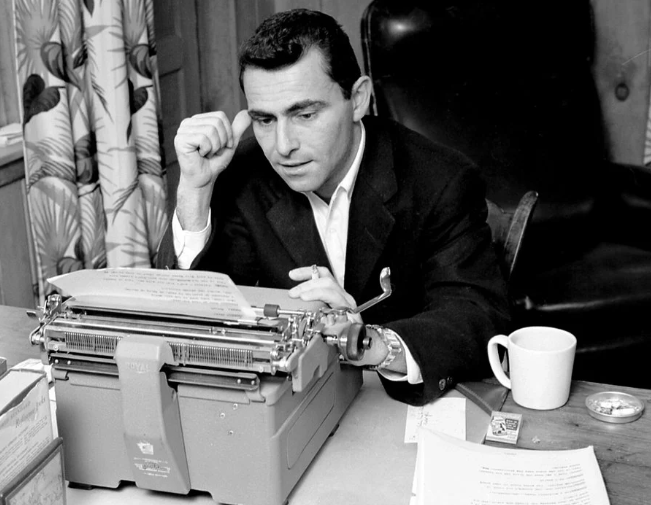
An Early Run-In With Censors Led Rod Serling to ‘The Twilight Zone’
His failed attempts to bring the Emmett Till tragedy to television forced him to get creativeJackie Mansky
April 1, 2019
In August of 1955, Emmett Till, an African-American boy from Chicago was abducted, beaten, and shot while visiting family in Mississippi. A nation divided by race dug in its feet in the aftermath. While Jet magazine disseminated photographs from the open-casket funeral, showing the full mutilation of the 14-year-old’s corpse, another story played out in the courtroom. That fall, an all-white jury acquitted the two killers, both white, of all charges.
The miscarriage of justice proved a galvanizing point in the Civil Rights Movement. Rod Serling, a 30-year-old rising star in a golden age of dramatic television, watched the events play out in the news. He believed firmly in the burgeoning medium’s power for social justice. “The writer’s role is to be a menacer of the public’s conscience,” Serling later said. “He must have a position, a point of view. He must see the arts as a vehicle of social criticism and he must focus the issues of his time.”
Soon after the trial concluded, Serling, riding off the success of his most well-received teleplay to date, felt compelled write a teleplay around the racism that led to Till’s murder. But the censorship that followed by advertisers and networks, fearful of blowback from white, Southern audiences, forced Serling to rethink his approach. His response, ultimately, was “The Twilight Zone,” the iconic anthology series that spoke truth to the era’s social ills and tackled themes of prejudice, bigotry, nuclear fears, war, among so many others.
Tonight, “The Twilight Zone” enters another dimension led by Jordan Peele. Peele has emerged as one of Hollywood’s most interesting auteurs, using a toolbelt of humor, horror and specificity to explore the human experience, especially through the construct of race. That through line can be found throughout his body of work from the witty sketch-comedy episodes of “Key & Peele” to his latest offering, the box-office record-setting Us. His perspective makes him a natural choice to step in as host and executive producer of the buzzy reboot coming to CBS All Access.
But unlike Serling, Peele will also be able to take the franchise in a direction that the dramatic writer wanted to go but was never able to get past the Cold War censors during the original show’s run from 1959-1964. For all that his Oscar-winning directorial debut Get Out, for instance, shares the DNA of “The Twilight Zone,” Peele’s allegory about black people in white spaces is direct in a way that Serling could never have been. To get on air, the story would have been forced to compromise in some way—camouflaging its intent by setting the story on a distant planet or another time period. Peele commented on that in a recent interview < https://www.nytimes.com/2019/03/26/arts/television/jordan-peele-twilight-zone.html > with Dave Itzkoff of the New York Times: “It felt like, if Serling were here, he’d have a lot to say and a lot of new episodes he couldn’t have written back in his time,” he said.
Few examples tell Serling’s struggles better than his attempt to bring the Till tragedy to television. Already, when he first pitched the idea to the advertising agency representing the U.S. Steel Hour, an hour-long anthology series on ABC, Serling was pre-censoring himself. Aware that he’d have to make concessions to get the script on screen, he sold the representatives on a story of a Jewish pawnbroker’s lynching in the South. When the idea was greenlit, Serling worked on that script as well as an adaptation for Broadway, where he knew he would have the freedom to tell Till’s story more directly, centering that plot around a black victim.
But Serling misjudged just how restrictive 1950s television could be. After he mentioned that his script-in-progress was based on the Till murder trial in an interview with the Daily Variety, papers around the country picked up the scoop. Thousands of angry letters and wires from the likes of white supremacist organizations followed, threatening both Steel Hour and ABC, who quickly capitulated and ordered changes to Serling's script. Recounting the incident several years later during an interview < https://books.google.com/books?id=C_Z1DwAAQBAJ&pg=PA137&lpg=PA137&dq=to+suggest+an+unnamed+foreigner,+then+the+locale+was+changed+from+the+South+to+New+England,+and+Im+convinced+they+would+have+gone+up+to+Alaska+or+the+North+Pole+using+Eskimos…except+I+suppose+the+costume+problem+was+of+sufficient+severity+not+to+attempt+it.&source=bl&ots=HUvHNRKWDW&sig=ACfU3U0-tiDUmMXyHM37Ig7rlkS6entsrQ&hl=en&sa=X&ved=2ahUKEwjoxrPwkKbhAhUGj1kKHT0zBAcQ6AEwAHoECAkQAQ#v=onepage&q&f=false ;
“Station owners and advertising agencies were afraid to offend any segment of their white audiences, even racists, for fear of losing income,” explains < https://www.nytimes.com/2002/10/20/arts/television-radio-battling-the-bottom-line-in-tv-s-earliest-days.html > journalist Jeff Kisseloff, author of The Box: An Oral History of Television, 1920-1961. As television gained a national audience in the 1950s, the creative freedoms that permeated the earliest days of the medium were quickly being pushed out in an attempt to sell to a white consumer market. Black purchasing power wasn't taken into account. “[A]s late as 1966, one study indicated that black performers constituted 2 percent of the casts of commercials,” according to research < https://books.google.com/books?id=PP1tHJN8h6AC&printsec=frontcover&dq=james+l+baughman&hl=en&sa=X&ved=0ahUKEwjoxsr8o6fhAhUMxVkKHdQhAdMQ6AEIKjAA#v=onepage&q=james l baughman&f=false> by media theorist James L. Baughman. The great Nat King Cole surmised the situation at hand succinctly, “Madison Avenue is afraid of the dark.”
When Serling's teleplay,“Noon on Doomsday,” finally aired on April 25, 1956, any hint of the South was removed from the plot; not even a Coca-Cola bottle could appear, lest viewers invoke the idea of the region. Instead, the opening crawl made clear that the story was set in New England. (Really, all that mattered was that it was set far away from the South: “I’m convinced,” Serling said in the Wallace interview, “they would have gone up to Alaska or the North Pole…except I suppose the costume problem was of sufficient severity not to attempt it.). The victim was now depicted as an unknown foreigner. “Further,” Serling fumed, “it was suggested that the killer in the case was not a psychopathic malcontent but just a good, decent, American boy momentarily gone wrong…”
It should be noted that some details of this ordeal might be exaggerations on Serling’s part or conflations of the two scripts he was working on simultaneously for stage and screen; Rod Serling Memorial Foundation board member Nicholas Parisi cautions in his recent biography of Serling that “a good deal of myth has crept into the narrative surrounding the production of ‘Noon on Doomsday.’” For instance, the Jewish Southerner that Serling said was initially cast as the victim, he writes, actually appeared in a draft of the theatrical script, instead. The unknown foreigner was already in Serling’s initial teleplay draft.)
Whatever the case, by the time everything was said and done, the message that aired in the teleplay of “Noon on Doomsday” was thin and garbled. When Serling read the New York Times’ review of it, he realized just how so. In a letter to a friend, he wrote: “I felt like I got run over by a truck and then it back[ed] up to finish the job.” Meanwhile, his relationship with the Theater Guild, whom he’d sold an option of the Broadway script and also produced the teleplay, had soured. Despite attempts to salvage it, the theatrical version of the story was not performed or published in his lifetime.
But Serling wasn’t done with the Till tragedy. Once again, this time for CBS’ “Playhouse 90” series, he attempted to tell the story of a lynching in a small town, this time setting the plot in the Southwest. After haranguing from CBS executives, Serling had to move the story back 100 years, erase any direct allusion to Till, as well any black and white racial dynamics in the script. Unlike “Doomsday,” however, this production, titled “A Town Has Turned to Dust,” still communicated, if more universally, Serling’s desired message on prejudice and hatred. The closing soliloquy, delivered by a journalist signing off a telegram to his editor, already had the feel of the best of the “Twilight Zone” epilogues Serling himself would go on to deliver:
Dempseyville got rain tonight for the first time in four months. But it came too late. The town had already turned to dust. It had taken a look at itself, crumbled and disintegrated. Because what it saw was the ugly picture of prejudice and violence. Two men died within five minutes and fifty feet of each other only because human beings have that perverse and strange way of not knowing how to live side by side, until they do, this story that I am writing now will have no end but must go on and on.
Scholar Lester H. Hunt argues that the lessons Serling took from the experiences of “Doomsday” and “Dust” laid the groundwork for what was to come in “The Twilight Zone.” Based on the censors, Hunt writes in an essay < https://books.google.com/books?id=qOfuslNpHE4C&printsec=frontcover&dq=twilight+zone+rod+serling&hl=en&sa=X&ved=0ahUKEwjA7ILt0KLhAhXpx1kKHQe8C_oQ6AEIWDAI#v=onepage&q=twilight zone rod serling&f=false > , “[Serling] changed, rather abruptly and driven by the pressure of circumstance, from an artist who thought it was his highest calling to comment on the problems of the day by depicting them directly to one who commented on principles and universals involved, not merely in the problems of the moment, but of human life itself.”
Or, as Serling himself later put it, “If you want to do a piece about prejudice against [black people], you go instead with Mexicans and set it in 1890 instead of 1959.”
Serling had also learned his lesson from his earlier dust-up with the Daily Variety. In his interview with Wallace, he demurred about whether or not his new show would explore controversial themes. “…[W]e're dealing with a half-hour show which cannot probe like a [Playhouse 90 production], which doesn't use scripts as vehicles of social criticism. These are strictly for entertainment,” he claimed. After Wallace followed up, accusing him of giving up “on writing anything important for television,” Serling easily agreed. “If by important you mean I'm not going to try to delve into current social problems dramatically, you're quite right. I'm not,” he said.
Of course, that couldn’t have been further from the case. His missteps with adapting the Till tragedy for television forced him to realize that to confront issues of race, prejudice, war, politics and human nature on television he had to do so through a filter.
The Twilight Zone is actually a term Serling borrowed from the U.S. military. Serling, who served as a U.S. Army paratrooper in World War II, an experience that marked many of the stories he went on to write, knew it referred to the moment a plane comes down and cannot view the horizon. As the title of the anthology drama, it spoke to his mission for the show: to be able to tell bold stories about the human conditions on screen by obscuring the view somehow.
As Peele steps into Serling's iconic role, he does so knowing he has a chance to speak more directly to those concerns. The veil that held Serling, who died in 1975, back has lifted somewhat, opening up the narrative for bolder stories to now enter “The Twilight Zone.”
ARTICLE
IN AMENDMENT
to see some pretty photos, I wish my underater train design could had been implemented , fortunate engineers
China completes Rail Line around Taklamakan Desert on the old Silk Road
By baronmayaChina has finished the new Hotan-Ruoqiang rail line and completed the circle around the huge Taklamakan Desert on the old Silk Road.
Ancient Silk Road travelers cursed China’s largest desert as Takla Makan, an ominous Persian-Turkic expression that translates as “Enter and you may never Return.”

Undeterred by its sandstorms and merciless terrain in the oblong basin north of Tibet’s glacier-packed peaks, China has announced the completion of the final section of a Taklamakan Desert railway loop line, the world’s first to encircle a desert.
Elsewhere, China is constructing Maglev train systems capable of hurtling passengers and freight hundreds of miles per hour, including an underwater route near Shanghai to reach tiny offshore islands.
These latest railways increase China’s military, industrial, agricultural and political prowess, amid escalating rivalry with the USA over each nation’s capabilities.

The Taklamakan Desert railway loop also allows Beijing greater access to rebellious Xinjiang province’s Kashgar, a distant southwestern city near vulnerable borders with India, Pakistan, Afghanistan and Kyrgyzstan.
Kashgar and elsewhere in Xinjiang comprise a large population of restive Muslim Uighurs of ethnic Turkic origin.
The railway loop also enables exploitation of the Tarim Basin oilfield, estimated to cover 350,000 square miles, or 560,000 square kilometers, under the Taklamakan’s huge dunes and shifting sands.
According to China’s official Xinhua news agency, workers tighten the screw of the rail and finished the final Hotan-Ruoqiang link on September 27, 2021. From the oasis town of Hotan, an existing line continues to Kashgar.

This railway line runs through the southern edge of the Taklamakan Desert,” said Yang Baorong, chief designer of the final 513-mile section. Sandstorms pose a serious threat to railway construction and operation, as tracks can be buried underneath.
Tickets to use this newest link are expected to go on sale in June 2022, allowing travelers to ride the entire loop to encircle the Germany-sized Taklamakan, which is second only to the Sahara Desert in size.
The Taklamakan loop is hailed by Beijing as a way to help the region, especially Xinjiang’s impoverished southern edge near northern Tibet.
That edge includes an existing Golmud-Korla Railway which now joins the new loop. Other trains already go south from Golmud to Lhasa in Tibet, and future plans envision continuing those tracks south from Lhasa to Nepal’s capital Kathmandu.
More than 2,000 years ago, Bronze Age inhabitants buried mummies in the Taklamakan, according to a French-funded excavation. As the desert expanded southward, ancient kingdoms crumbled into ruins or were buried.
These included the flourishing Loulan kingdom on vast Lake Lop Nur, before its water evaporated in the 5th century.
By constructing a railway around the desert, Chinese engineers have recreated Silk Road caravan routes that linked China and Europe by skirting the Taklamakan’s rim.
Buddhist monks also trudged those routes spreading their religion east, until medieval sea routes replaced hazardous overland treks to East Asia.
The Taklamakan Desert parches 124,000 square miles and is about 600 miles east to west.

It bulges up to 260 miles across, flanked by the snow-capped Tian Shan range on the desert’s north and the Kunlun Mountains along its southern curve. Rugged Pamir peaks form its western ridge.
The railway had to cross, or route around, elevations up to 5,000 feet. Grass grids were laid across 165 million square feet of dunes which were virtually devoid of plant life, officials said.
Anti-desertification programs planted 13 million seedlings. In the harshest, most unpredictable zones – battered by sandstorms and smothered by swollen dunes – engineers designed lengthy bridges above chaotic sand.

Closer to Beijing meanwhile, a Maglev train project is starting in Shanxi, a north-central province. Magnets allow Maglev train carriages to float without wheels.
The high-speed train uses superconducting magnetic levitation technology to disengage from the ground to eliminate frictional drag.
This Maglev uses “a near-vacuum internal duct line to dramatically reduce air resistance, to achieve travel speeds of more than 1,000 kilometers-per-hour.
China already boasts the world’s fastest commercial Maglev on a 19-mile route in Shanghai, linking Pudong Airport to an urban metro system on the city’s edge within seven minutes, at up to 268 mph.
Nearby, a bullet train is preparing to zip under the sea at 155 miles-per-hour. Construction is well underway,” the UK-based website IFL Science reported in May 2021.

It would be “the world’s first underwater bullet train, which would extend nationally from Ningbo, a port city near Shanghai, to Zhoushan, an archipelago of islands off the east coast.
Covering a 47.8-mile stretch of almost entirely newly-built railway, the new route will include a 10-mile underwater section.
Verified post
https://weibo.com/2286908003/LxXRGg1aUArticle
https://cosmoschronicle.com/china-completes-rail-line-around-taklamakan-desert-on-the-old-silk-road/
-
Mississippi massala back in theaters
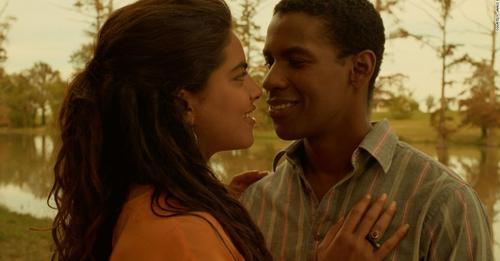
your thoughts?
Mine are below
interesting... three parts to this story- misssissippi- a black man whose forebears were enslaved in the usa, a black woman who is a recent immigrant and has asian ancestry, not african.... HAs mississippi changed? I say no. Still the fiscally poorest state, still a state with no nonsense phenotypical lines. Black men in the usa today like all male phenotypical groups in the usa still marry mostly into their own community. but i think white asian women <chinese/korean/japanese> get more attention than black asian. Asian women in the usa today like all female geographic descendcy groups in the usa still marry mostly into their own community. but I think white non asian men get more attention than black non asian men. but in my personal experience I have found more indians of asia <female or male> that see their caste system as a guise for phenotypical bias. And have embraced black unity, not african , but black. and I have seen more black people of african descent in the usa realize that being black is also a native phenotype to asian or native american not merely africa. so, slow growth. Mississippi is mississippi so... the yojibwe word means big river sooo, it takes a long time to get from one place t another -
Happy birthday Hattie McDaniel
The lesson in her story is how Black comprehend being peaceful. Black people in the usa in the past as now, say they want peace to all outside as well as all parts in, but then they want a defiance to any insult, any subjugation. but being peaceful is about accepting levels of insult of subjugation
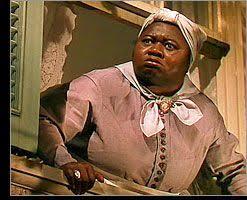
Some prose about her, I don't know the author but think it a good share
"Why should I complain about making $700 a week playing a maid? If I didn't, I'd be making $7 a week being one."
Hattie McDaniel was attacked by the NAACP during her career for appearing in negative, stereotyped servile roles, Hattie strongly and proudly stated that she did the best she could. She went on to state that she worked not only for herself but thought she was working for future generations of African-Americans as well. She always hoped people would come around and understand what she had to go through in Hollywood and was extremely hurt at the way she was treated, for the roles she couldn't get, and how the NAACP kept pushing the image of Lena Horne on her.
When black actors and actresses couldn't find a decent place to stay in Los Angeles, Hattie opened her doors to them at her home.
The competition to win the part of Mammy in "Gone with the Wind" (1939) was almost as fierce as that for Scarlett O'Hara. First Lady Eleanor Roosevelt wrote to film producer David O. Selznick to ask that her own maid, Elizabeth McDuffie, be given the part. McDaniel did not think she would be chosen because she had earned her reputation as a comic actress. One source claimed that Clark Gable recommended that the role be given to McDaniel; in any case, she went to her audition dressed in an authentic maid's uniform and won the part. Despite the fact Gable played a joke on her during filming (putting real brandy in the decanter instead of iced tea during the Bonnie Blue birth celebration scene), they were actually good friends. Gable later threatened to boycott the premiere in Atlanta because McDaniel was not invited, but later relented when she convinced him to go.
For her performance, McDaniel won the 1939 Academy Award for Best Supporting Actress, the first black actor to have been nominated and win an Oscar. "I loved Mammy," McDaniel said when speaking to the white press about the character. "I think I understood her because my own grandmother worked on a plantation not unlike Tara." Her role in Gone with the Wind had alarmed some whites in the South; there were complaints that in the film she had been too "familiar" with her white owners. At least one writer pointed out that McDaniel's character did not significantly depart from Mammy's persona in Margaret Mitchell's novel, and that in both the film and the book, the much younger Scarlett speaks to Mammy in ways that would be deemed inappropriate for a Southern teenager of that era to speak to a much older white person, and that neither the book nor the film hints of the existence of Mammy's own children (dead or alive), her own family (dead or alive), a real name, or her desires to have anything other than a life at Tara, serving on a slave plantation. Moreover, while Mammy scolds the younger Scarlett, she never crosses Mrs. O'Hara, the more senior white woman in the household. Some critics felt that McDaniel not only accepted the roles but also in her statements to the press acquiesced in Hollywood's stereotypes, providing fuel for critics of those who were fighting for black civil rights. Later, when McDaniel tried to take her "Mammy" character on a road show, black audiences did not prove receptive.
Happy Birthday, Hattie McDaniel!
-
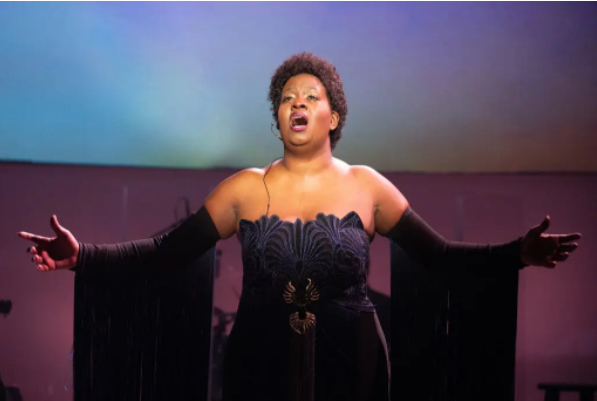
somi kakoma by sara krulwich
‘Dreaming Zenzile’ Review: A Tribute to Mama Africa
The musical is Somi Kakoma’s thank-you note, written across generations, to the South African singer and activist Miriam Makeba.By Alexis Soloski
June 1, 2022If you want to see a performer in full command of her instrument and her powers, take the F train to Second Avenue and walk the few blocks to New York Theater Workshop to savor Somi Kakoma < SOMI (somimusic.com) > in “Dreaming Zenzile,” her tribute to the South African singer and activist Miriam Makeba, born Zenzile Miriam Makeba.
Makeba, a star from the 1960s through her death in 2008, pioneered the form broadly known as world music. Singing in Xhosa, Swahili, Sotho, Zulu and English, Makeba popularized African songwriting among American and European audiences, earning the nickname Mama Africa. Throughout her life, she lent her voice to social justice causes, particularly that of Black South Africans living under apartheid. Onstage, at New York Theater Workshop, in collaboration with the National Black Theater, Kakoma, in a marigold dress, with a voice like a sunrise, plays her through 76 years of her eventful life.
Makeba was a vocal shapeshifter who could triumph in practically any genre — folk, jazz, American songbook, Afropop. Vocally, Kakoma has that chameleonlike quality, too, varying her big, bright voice with husky breaths, vivid ululation and the Xhosa clicks for which Makeba was famous. Her singing seems as effortless as it is varied, as easy as it is virtuosic. “Dreaming Zenzile,” directed by Lileana Blain-Cruz with music direction by Hervé Samb, is best understood and enjoyed as Kakoma’s gift of love and dignity, across generations, from one artist to another.
But as a work of theater, “Dreaming Zenzile” struggles among the competing forms of recital, dream play, memory play and biography. The bare set, by Riccardo Hernández, suggests a concert stage, illuminated by Yi Zhao’s vibrant lights and backed, less helpfully by Hannah Wasileski’s banal projections of waves, flowers and rainbow abstractions. Is this an auditorium or some astral way station? Is it the afterlife? Lacking the style and thematic force that defines Blain-Cruz’s best work, the show feels less like a narrative than a tone poem, which can make time hang heavy in the first half; it takes an hour just to bring young Miriam to her professional debut.
Amplified by a four-person chorus (Aaron Marcellus, Naledi Masilo, Phumzile Sojola and Phindi Wilson) and a four-person band, the music feels electric, often joyful, a sharp shock of pleasure that Marjani Forté-Saunders’s supple, elegant choreography enhances. But the interplay between book passages and Makeba’s songs, which are not subtitled, rarely feels essential. Why these songs, in these moments? By contrast, Kakoma’s emotion-heavy, jazz-inflected songs are too on the button. Really, they’re all button. Those who arrive without a working chronology may feel lost.
Though it touches briefly on some central themes — exile, responsibility — and limns, however elliptically, most of the major life events of its subject, “Dreaming Zenzile” withholds what most of us desire from a work of this kind: a greater understanding of how a performer’s life shapes and impacts her art, the relationship between experience and oeuvre. This desire isn’t necessarily fair or sensible. Sometimes that relationship doesn’t exist. Sometimes it is too oblique to parse. But because “Dreaming Zenzile” too often favors symbol and abstraction, the audience is denied this connection.
Only in its closing moments, which occur shortly before Makeba’s death, does the show achieve a kind of cohesion and vigor. Throughout, Makeba has taken up the burden of activism with sturdiness and poise, freeing her voice in the hope that others might be made free. Finally, she announces the cost.
“Do you know what it is to be the first?” she says, choking on the words. “Do you know the weight of that? The loneliness?”
To ask one woman to stand in for an entire continent was always too great a burden. Mama Africa? It was impossible. That Makeba bore it for so long, and with such grace, is a wonder and a gift. At its best, “Dreaming Zenzile” is a thank-you note, written with deep and abiding gratitude.
Dreaming Zenzile
Through June 26 at New York Theater Workshop, Manhattan; nytw.org. Running time: 2 hours 15 minutes.Dreaming Zenzile
New York Theater Workshop
79 E. Fourth St.
E. Village
212-460-5475
nytw.org
CategoryOff Broadway, MusicalRuntime2 hours 15 minutesCreditsWritten by Somi Kakoma, directed by Lileana Blain-CruzCastSomi Kakoma, Aaron Marcellus, Naledi Masilo, Phumzile Sojola, Phindi Wilson, Kim Onah, Darrell Purcell Jr.PreviewMay 17, 2022OpenedJune 1, 2022ClosingJune 26, 2022Upcoming Shows
Wednesday June 8 7:00 pm
Thursday June 9 7:30 pm
Friday June 10 8:00 pm
Saturday June 11 2:00 pm
Saturday June 11 8:00 pm
This information was last updated on May 27, 2022Model: Somi Kakona
Photographer: Tatenda Chidora
...
THAT WAS THE HONEY HERE IS THE POT
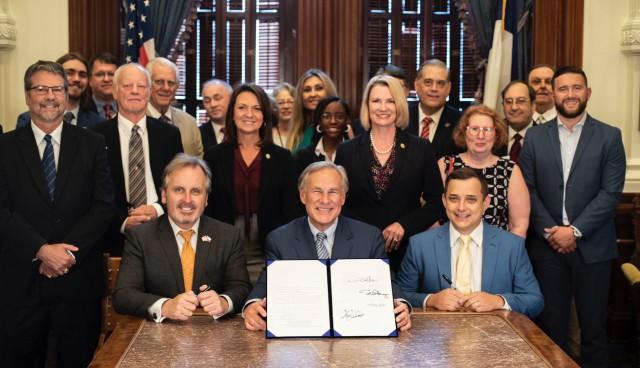
It always amazes me how articles concerning laws, never link to the laws official location online by the legislatures online location. why do I always have to find it?
U.S. Supreme Court blocks Texas law limiting content moderation by social media companies
by: URIEL J. GARCÍA (TEXAS TRIBUNE)Posted: Jun 1, 2022 / 09:01 AM CDT
Updated: Jun 1, 2022 / 09:04 AM CDT
The U.S. Supreme Court on Tuesday blocked a Texas law < Governor announcement: https://gov.texas.gov/news/post/governor-abbott-signs-law-protecting-texans-from-wrongful-social-media-censorship ; First phase in texas legislature: https://capitol.texas.gov/BillLookup/History.aspx?LegSess=871&Bill=HB20 ; second phase in texas legislature: https://capitol.texas.gov/BillLookup/History.aspx?LegSess=872&Bill=HB20 > that prohibits large social media companies, such as Facebook or Twitter, from banning or removing users’ posts based on political viewpoints.
The justices, in a 5-4 vote, granted NetChoice and the Computer & Communications Industry Association’s request to reinstate a block imposed by a federal district judge as the lawsuit makes its way through the courts. The justices who voted to reverse the lower court’s ruling didn’t give a reason for their decision — a standard practice when the court is ruling on emergency applications.
Matt Schruers, president of the Computer & Communications Industry Association, one of the two groups that sued to block the law on claims that it violates companies’ First Amendment rights, celebrated the court’s decision.
“No online platform, website, or newspaper should be directed by government officials to carry certain speech,” he said in a statement. “This has been a key tenet of our democracy for more than 200 years and the Supreme Court has upheld that.”
Passed during a special session last year, House Bill 20 does not provide any specific civil penalties for breaking the law besides allowing users to sue to recuperate their court costs from the company found in violation. The law also empowers the attorney general to pursue violations.
The law would ban platforms with more than 50 million monthly users, such as Facebook, Twitter and YouTube, in the U.S. from removing a user over a “viewpoint” and require them to publicly report information about content removal and account suspensions.
The Legislature passed the measure after outcry from Republicans over perceived anti-conservative bias among major tech companies. That charge grew when Twitter permanently banned former President Donald Trump for inciting violence and purged over 70,000 accounts linked to dangerous conspiracy groups after the deadly Jan. 6 insurrection attack of the U.S. Capitol.
Supporters of the law say it ensures that users’ political views go uncensored. State Rep. Briscoe Cain, R-Deer Park — who authored the bill — compared tech companies to “common carriers” like phone companies or cable providers, which are barred from customer discrimination.
Big social media company executives have denied removing content or blocking users based on their viewpoints, though they do have policies prohibiting explicitly graphic content, bullying, hate speech and dangerous misinformation. The two trade groups that challenged the Texas law argued in their lawsuit that HB 20 forces social-media platforms “to disseminate, for example, pro-Nazi speech, terrorist propaganda, foreign government disinformation, and medical misinformation.”
“Texas’s HB 20 is a constitutional trainwreck—or, as the district court put it, an example of ‘burning the house to roast the pig,’” Chris Marchese, counsel at NetChoice, said in a statement on Tuesday. “We are relieved that the First Amendment, open internet, and the users who rely on it remain protected from Texas’s unconstitutional overreach.”
Texas Attorney General Ken Paxton has defended the law, saying it doesn’t violate the First Amendment because social media platforms are “gatekeepers of a digital modern public square.” He has also argued that social media platforms “are the twenty-first century descendants of telegraph and telephone companies.” And he has claimed that the government should be allowed to regulate the companies as “common carriers,” which are private or public companies that transport goods or people and are barred by government regulators from discriminating against customers.
The two industry trade groups that represent companies such as Google and Twitter sued to block the law last fall. In December, a federal district court judge ruled in favor of the groups and prevented the law from going into effect, reasoning that the First Amendment protects a company’s right to moderate content and calling parts of the law “prohibitively vague.”
As a result, Paxton appealed the district judge’s decision to the 5th Circuit Court of Appeals, which reinstated the law.
Three conservative justices, Samuel A. Alito Jr., Clarence Thomas and Neil M. Gorsuch, said in a dissent that they would have let Texas’ law stand for now. Justice Elena Kagan, a liberal, said she would have also let the order stand but didn’t provide a reason.
Alito wrote in the dissent that it is “not at all obvious how our existing precedents, which predate the age of the internet, should apply to large social media companies.” Still, he wrote, the case is “of great importance” and the Supreme Court would have to review the arguments at some point.
“Social media platforms have transformed the way people communicate with each other and obtain news,” he wrote. “At issue is a ground-breaking Texas law that addresses the power of dominant social media corporations to shape public discussion of the important issues of the day.”
-
@darastarrtucker #sesamestreet #joanganzcooney #jonstone #lloydmorrisett #racialsegregation #childrenstelevision #childrenstelevisionworkshop #muppets #publictelevision #publictv #pbs #ctw #earlychildhoodeducation #educationaltv @darastarrtucker ♬ original sound - Dara Starr Tucker i love how she never said white, she said middle class as compared to black and brown kids. I didn't realize financial middle class is comparable to black or brown which are phenotype. She mentions the colleges of these people. yes, people know each other based on their circles. yes. IT doesn't mean being in that circle is a positive. ... The point that the producers and creators all realized they didn't need to say what they were clearly doing is an interesting point. today, everything must be announced. Maybe sesamae street had a better media position than in modernity. and sesame street is still controversial. PEople today don't seem to realize that all art is always somewhere controversial. the question is, does that controversial status make it banned or blocked or financially influenced in a deadly way.
https://www.tiktok.com/@darastarrtucker/video/7095684407448653099
in amendment
The point I concur to her most that she made in the post is about how the original creators of sesame street didn't constantly proclaim they accepted phenotypical integration. They simply enacted it. I think a lesson to many pro-miscegenist or integrationists can be learned from the sesame originators. You don't have to wave a flag for a cause you are supporting. Just simply act it. It can be argued, all groups in the usa need to learn that but I comgress.... the point I concur least is that sesame street isn't controversial today. It is. All art is always controversial somewhere, to some people. The question is, do those people's controversions to said art have the ability to restrict/end/financially lead to death the art, ala the Nat King Cole show. The Nat King Cole show, even white media admits, was getting more viewers, but the condemnations of whites in the south was too large/valuable to treat the nat king cole show with the respect a show getting the highest ratings in a fiscal capitalistic country , on financial merit warrant.
in amendment
did you know ? The lesson we writers can take from the creators of sesame street is , whatever our philosophies, let the art do the talking when asked what culture our art signifies. -
Alice (2022)
Today’s episode of MTMW was inspired by the real events of Mae Louise Walls Mills family who were victims of peonage and not freed until 1963. Keke Palmer’s character, Alice, runs away from an existence that is deeply entrenched in 1800s customs and practices, and into a new century where black people are no longer chattel. She questions what freedom really means to her in this new world she’s walked into and how she’s going to obtain it for the family she left back on the plantation. Join the conversation! Share your thoughts in the comments below or in our Facebook group!
Video Review Link
https://www.youtube.com/watch?v=Ikr-GsGRadUFacebook group
https://www.facebook.com/groups/162792258578547/COMMENTS
circa 3:20 some articles concerning the millers
the article the director saw , dated january 6th , 2006
https://abcnews.go.com/Nightline/story?id=129007&page=1
a people article
https://people.com/archive/the-last-slaves-of-mississippi-vol-67-no-12/
a reference on the African American Literary Book Club
https://aalbc.com/tc/profile/6477-richardmurray/?status=1830&type=status3:23 I searched, in certain legal quarters, Peonage is when a free person is being financially enslaved as opposed to slavery when a person is legally enslaved. I concur to you Nike, slavery is slavery. The need to not use the word peonage comes from nonblack plus some blacks in the usa trying to create distinction in the relationship between blacks side nonblacks before and after the war between the states. For example: a black man's father before the war between the states was legally enslaved, or a slave, which was immoral; but after the war you are a peon , as a free person being taken advantage of by your fellow citizens. Now even though your father worked on mr blanc's plantation before the war and you are working on mr blanc's plantation after the war. The legal scenario of the two is important in legal settings even though the functionality of enslavement to another is purely the same. Remember, nonviolence demands power through the rule of law.
3:59 peonage is not illegal for convicted criminals still. and remember, have all 50 states acted in line to the federal government? thus the Walls Mills family in the 1960s scenario.
7:16 krysten ver linden also wrote it
7:58 also freedom in fiscal capitalism is about ownership. One must be free in the mind but, financially, owners are the most free in fiscal capitalism. And, all to often black people do not own for all our various employments, whether respected or disrespected
9:47 I love your statement, she goes from dressing like harriet tubman to foxy brown. Is Alice in her revenge story, the antithesis of Solomon Northrup sitting in the carriage near his white savior as patsy yell out his name and faint.
11:11 great question, is it horror? is it time travel? ... I think the definitions, plural, of horror or time travelling stories are numerous enough to say yes to both questions, depending on the definition chosen. Maybe with adjectives , historical horror or conditional time travel, many others besides you or me can come on board?
ARTICLESSisters: We Were Modern-Day Slaves
ByABC News
January 6, 2006, 12:42 PM
• 5 min readDec. 20, 2003 -- As Mae Miller tells it, she spent her youth in Mississippi as a slave, "picking cotton, pulling corn, picking peas, picking butter beans, picking string beans, digging potatoes. Whatever it was, that's what you did for no money at all."
Miller and her sister Annie's tale of bondage ended in the '60s — not the 1860s, when slaves officially were freed after the Civil War, but the 1960s.
Their story, which ABCNEWS has not confirmed independently, is not unheard of. Justice Department records tell of prosecutions, well into the 20th century, of whites who continued to keep blacks in "involuntary servitude," coercing them with threats on their lives, exploiting their ignorance of life and the laws beyond the plantation where they were born.
‘Don’t Run Away — They’ll Kill Us’
The sisters say that's how it happened them. They were born in the 1930s and '40s into a world where their father, Cain Wall, now believed to be 105 years old, had already been forced into slave labor.
"It was so bad, I ran away" at age 9, Annie Miller told ABCNEWS' Nightline. "But they told my brother they better come get me. I ran to a place even worse than where I were. But the people told my brothers, they go, 'You better go get her.' They came [and] got me and they brought me back.
"So, I thought Dad could do something about that," she said. "You know, I told him, said, 'I'm gonna run away again.' He said, 'Baby, don't run away. They'll kill us.' So, I didn't try it no more."
The Millers' story came to light recently when Mae Miller walked into a workshop on the issue of slave reparations run by Antoinette Harrell-Miller, a genealogist.
"She said, 'I have to tell you my story. My dad is 104. He's still living. He has some stories that he can tell you when we were still held in slavery,' " Harrell-Miller recalled.At first, Harrell-Miller needed some convincing, but, "When I looked at the living conditions of the family, I understood very clearly how it's possible for people to live like that. Driving down to the deltas of Mississippi, looking at the house that they lived in, it was hard to believe that people would live in houses like that."
Now she not only believes the story, she has become something of a guardian angel in Mae Miller's life. The Miller sisters and their father, hospitalized for the past several months after suffering a heart attack — have joined a class action lawsuit in Chicago seeking reparations for the 35 million African-Americans who are descendants of slaves.
Ron Walters, a political scientist who's an advocate for slavery reparations, also believes the Miller sisters' story.
"I believe it because it is plausible," Walters said. "One of the things I think we know is that these letters [archived early in the 20th century by the NAACP] tell us that in a lot of these places, that they were kept in bondage or semi-bondage conditions in the 20th century — [in] out-of-the way places, certainly where the law authorities didn't pay much attention to what was going on."
‘Reckon It Had to Be Slavery’
Class action suits are always stronger when the plaintiffs include someone whose personal experience dramatically illustrates the wrong that's been done. It does not get more dramatic than the story the Miller sisters told about life as slaves in Mississippi.
"It's the worst I ever heard of, so I don't know what you name it," Annie Miller said. "It was very terrible. So, I reckon it had to be slavery for it to be as bad as it were."
"They beat us," Mae Miller said. "They didn't feed us. We had to go drink water out of the creek. We ate like hogs. We didn't eat like dogs because they do bring a dog to a certain place to feed dogs. We couldn't have that."
Mae Miller said she didn't run away because, "What could you run to?"
Annie Miller was frightened to discuss the experience her family left behind 42 years ago.
"They said, 'You better not tell because we'll kill 'em, kill all of you, you n----rs,'" Annie Miller said. "Why would you want to tell anybody that you was raped over and all that kind of mess? You don't tell. Who would you want to tell? I don't want to tell you. I don't want to tell nobody."
"We thought everybody was in the same predicament," Mae Miller said. "We didn't know everybody wasn't living the same life that we were living. We thought this was just for the black folks.
"I feel like my whole life has been taken," she said. "You know, they did so much to us."
ABCNEWS' John Donvan contributed to this report.
Article link
https://abcnews.go.com/Nightline/story?id=129007&page=1The Last Slaves of Mississippi?
By Bob Meadows
Updated March 26, 2007 12:00 PMWith every step into the overgrown thicket, Mae Miller’s breathing becomes more labored. “My heart is beating so fast,” she says. “I can’t believe I’m back here.” It’s not the unsteady footing in this field in Gillsburg, Miss., that’s giving her pause; it’s the memories. Some 50 years ago, Miller says she and her parents, Cain and Lela Wall, and her six siblings were held like slaves on this land and surrounding farms. “We been though pure-D hell,” she says today. “I mean hell right here on earth.”
The story that Miller, 63, and her relatives tell is a sepia-toned nightmare straight out of the Old South. For years, she says, the family was forced to pick cotton, clean house and milk cows—all without being paid—under threat of whippings, rape and even death. They say they were passed from white family to white family, their condition never improving, until finally, hope that life would ever get better was nearly lost. Technically, the Walls were victims of “peonage,” an illegal practice that flourished in the rural South after slavery was abolished in 1865 and lasted, in isolated cases like theirs, until as recently as the 1960s. Under peonage, blacks were forced to work off debts, real or imagined, with free labor under the same types of violent coercion as slavery. In contrast with the more common arrangement known as sharecropping, peons weren’t paid and couldn’t move from the land without permission. “White people had the power to hold blacks down, and they weren’t afraid to use it—and they were brutal,” says Pete Daniel, a historian at the Smithsonian Institution and an expert on peonage.
By the 1940s, according to records in the National Archives, only rare cases of long-term peonage survived, mostly in rural areas and small towns. That places the Wall family—who say they lived in drafty shacks with grass-filled pallets for beds on white-owned farms until 1961—among a tiny minority. The family’s story might not be known at all if it weren’t for the work of a New Jersey lawyer, Deadria Farmer-Paellmann. In 2001 she began a national effort to claim reparations from corporations that long ago profited from slavery. She scoured the country for descendants of slaves and learned about the Wall family from Louisiana genealogist Antoinette Harrell. Farmer-Paellmann still marvels that the end of slavery had made no practical difference in their lives, even after the advent of TV and jet travel. “They didn’t know blacks were free, that’s what’s so incredible about their story,” says Farmer-Paellmann. “They thought freedom was for whites only.”
Mostly out of fear, but also of shame, Mae Miller says she never breathed a word of her family’s history, even to her own children, until 2001. Mae’s father, Cain Wall Sr., she says, was born into peonage in St. Helena Parish, La. Census records place the date around 1902, though the family says he is even older. Now in frail health and bed-bound, he married when he was 17 (his wife died in 1984) and by the mid-1930s, the family says, was living across the Mississippi border in Gillsburg, working the fields for white families who lived near each other or attended the same church—the Walls (a common name in the region), the McDaniels and, mostly, the Gordons.
While blacks in nearby towns like Liberty, Miss., attended school, owned businesses and protested Jim Crow laws that denied them civil rights, life in the countryside was a very different matter. The Walls had no electricity, phone or radio. Trips to town, to visit relatives, even to church, were forbidden. Once during World War II, according to the family, Cain Sr. escaped from the Gordon farm. Within two hours he was picked up by two white men; they said they were taking him to a military recruiting station in Jackson, but immediately returned him to the farm. The Amite County school district, where Gillsburg sits, records the six oldest children being enrolled in the fall of 1951—but none of them recall going at that time. “I went to school for a little while in the seventh grade, but I was a lot older than all the other students,” Mae says. “I couldn’t read or write.”
Meals were whatever they could catch—rabbits, birds, fish—and the white family’s leftovers. Beatings with whips or even chains were common, they say, for slacking off or talking back. “The whip would wrap around your body and knock you down,” says Mae’s sister Annie, 67. Mae remembers her father once being beaten so badly that she and her siblings climbed on his fallen body to protect him.
The most crippling violence began when Mae was about 5. She vividly remembers the morning she and her mother went to the Gordon home to clean it. They were met by two men—faces she recognized. One tugged on Mae’s long hair, she recalls. She tried to hide in her mother’s skirt, but he grabbed her and pushed her to the floor. Both she and her mother were raped that morning. “I remember a white woman there saying, ‘Oh no, not her, she’s just a yearling,'” Mae says. “But they just kept on and on.” Mae says her mother begged the men to spare her daughter, and a white women cleaned her up after the attack. That was the first of numerous times she was raped, she says. “They told me, ‘If you go down there and tell Ol’ Cain, we will kill him before the morning.’ I knew there wasn’t anyone who could help me.”
All these years later, it’s impossible to prove Mae’s recollections. There is no legal documentation of the atrocities she describes. “Back then, we did what we had to do to live,” says Mae. “We thought everyone was in the same fix.” When contacted today, a member of the Gordon family has vastly different recollections of that era. Durwood Gordon, 63, a retired propane truck driver now living in McComb, Miss., recalls the family worked for his uncle Willie, a dairy farmer who died in the ’50s, and cousin William Gordon, who was 84 when he died in 1991. “I just remember [Cain Sr.] was a jolly type, smiling every time I saw him,” says Durwood, who was younger than 12 when the Walls worked there. To him, the rape charge is unbelievable. “No way, knowing my uncle the way I do,” Durwood says. “I knew him to be good people, good folks, Christian.”
The Walls finally found freedom in 1961, while working for another family in Kentwood, La. Mae, about 18, refused one morning to clean the house. After the owner threatened to kill her, she ran away. “I don’t know what got into me,” she says. “I remember thinking they’re just going to have to kill me today, because I’m not doing this anymore.” The furious white farmer kicked her whole family off his land.
Not knowing where else to go, most of the Walls stayed near Kentwood. Mae got her first paying job, working in a restaurant for a white lady. “I kept waiting for her to be mean, but she treated me well,” she says. But her past left scars she couldn’t run from. Around 1963, she married Wallace Miller, a construction worker, and wanted to start a family. But a doctor told her that her reproductive system had been damaged, likely from the rapes. Devastated, Mae eventually adopted four children.
Well into her 30s, Mae went back to school and learned to read and write. She became a glass-cutter in the 1970s, a job she held for 20 years. “I started out at a dollar an hour but it seemed like a million to me,” she says with a smile. After her house burned down in 1995 and an injury prevented her from working, she was homeless until 2003. But Mae began cleaning houses and rebounded: With the help of a real estate agent whose office she cleaned, she bought her current house with no money down.
Mae finally broke the family’s silence in 2001 when she attended what she thought was a public lecture on black history. In fact, the church meeting was about the slavery reparations campaign. Incredibly, it was only then that the family learned their life on the white-owned farms had been illegal. “I couldn’t believe it. How could somebody do that to another person?” wonders Mae, her voice bitter. In 2003 they joined a suit that is slowly moving through U.S. District Court in Illinois. But for Mae, the distant possibility of winning compensation for her family’s struggle is only one reason to share her history. “I’m really just glad this story is out there,” she says. “It might bring some shame to the family, but it’s not a big dark secret anymore. It’s out there, and it’s not hounding me anymore.”
Article link
https://people.com/archive/the-last-slaves-of-mississippi-vol-67-no-12/
-
MLK jr on accountability
MLK jr's dream lives on in fifa
-
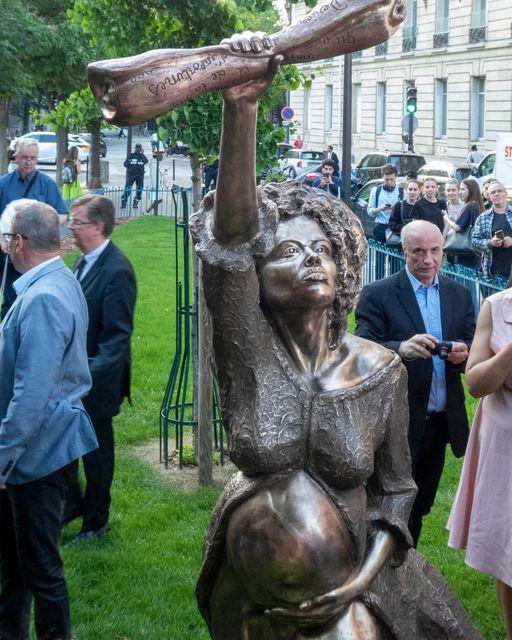
Title: Solitude
Artist: Didier Audrat.
Photographer: Entrée to Black Paris
“ Sculpture of Solitude Unveiled
Yesterday, a bronze sculpture of Solitude - the Guadelopean woman who was hanged for her part in resisting the reinstatement of slavery in Guadeloupe the day after giving birth - was unveiled in a moving ceremony at Place du Général Catroux in the 17th arrondissement. The sculpture can be found in the Solitude garden at the northernmost lawn of the square.”
Solitude unveiled
Image by Entrée to Black Paris -
NOPE trailer, my thoughts, article
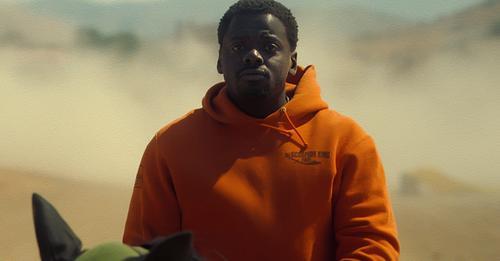
MY THOUGHTS
ok... What did i see... the main characters, kaaluya and keke palmer live in some western usa area, black cowboy heritage ok.. this is a financially base area. From a simple glance this is the intercontinental railroad movie, black horse riders, an asian with a cowboy hat on so that is the human side... what is unnatural three things: a cloud that is very thick, and is being influenced. Dust clouds exists but they don't come absent a slow growth of dust. So a thick cloud on a sunny day at ground level at speed absent dust around is unnatural. Next is a body lifting from the ground straight into space. This reminds me of a film with julianne moore about a woman who is trying to remember her child and creatures foreign to earth actually control humanity and use it for experiments. In the film's case to see if the love of a child occurs before or after a child exits the womb. In the film whenever anyone became a threat the aliens lifted them into the sky like they are on a string. functionally a specific while potent gravitional field is being generated. In my mind maybe a neutron array. but the kind of device to house such a system, right now escapes me. Last is the two fingered fist of a creature under a blanket/cloth/cover bumping fist to a human being. ... A sense of surveillance and a robotic system is present. ... so putting all these things I saw together... I think what we have here is humanity is under the control of creatures, whose descendency is unknown, maybe they are ancient pre humanity , like the guyver , or they are truly extraterrestrial. These creatures are looking for another creature, maybe it is related to them , maybe it is not , but it is also not human. And I think it travels by a cloud... in my mind I think of cowboys and aliens a little as well. A story where the influence of the alien is one and done, no Nope 2 and Nope the return or Nope Nope.ARTICLE
'Nope': Jordan Peele explains meaning behind his mysterious new movie's titleLAS VEGAS – Jordan Peele is doling out a few more details about his cryptic new thriller.
The comedian-turned-filmmaker behind "Get Out" and "Us" returns to multiplexes this summer with "Nope" (in theaters July 22), a sci-fi/horror flick starring Daniel Kaluuya, Keke Palmer and Steven Yeun.
After premiering a terrifying teaser during this year's Super Bowl, Peele gave convention-goers at CinemaCon a clearer look at what's in store with the debut of the movie's first full-length trailer Wednesday.
Given that it won't be released to the public for "several more weeks," Peele asked the room full of theater owners and journalists to keep the trailer's secrets to themselves. But it's safe to say the new footage earned raves on social media, with people calling it "super cool," "ominous and creepy," and that Kaluuya and Palmer – playing scheming siblings who train horses – are "absolute stars."
Introducing the trailer, Peele said he wants to "retain some mystery" around "Nope," whose plot fans have feverishly tried to decipher online.
"Some (theories) get kind of close," while others "are nonsense," Peele said. But he would allow that it's "definitely a ride," describing it as a movie for "the person who thinks they don't like horror movies."
As for the film's monosyllabic title, Peele explained that it was inspired by the reactions he hopes "Nope" elicits.
"I love titles that reflect what the audience is thinking and feeling in the theater," he said. "Especially Black audiences: We love horror, but there's a skepticism, like, 'You're not gonna scare me, right?' I'm personally going to thrive on the times I hear 'Nope!' in our theater (when the film is released)."
Peele, who won the best original screenplay Oscar for "Get Out" in 2018, said he sees it as his "privilege and responsibility to try and make new films and tell original stories.
"Until someone tells me I can't, my plan is to bring these new ideas and new dreams and new nightmares to the big screen."

-

Yeah I have no idea what this film is about, but I'm looking forward to seeing it. I also have no interest in trying to figure out what it is about; I'm pretty confident that it will be something different -- which is all I care about

I liked Get Out, and am not surprised it won an Oscar but did not care for Us. I did not get that film...

-
-
 1
1
-
- Report
-

-
-
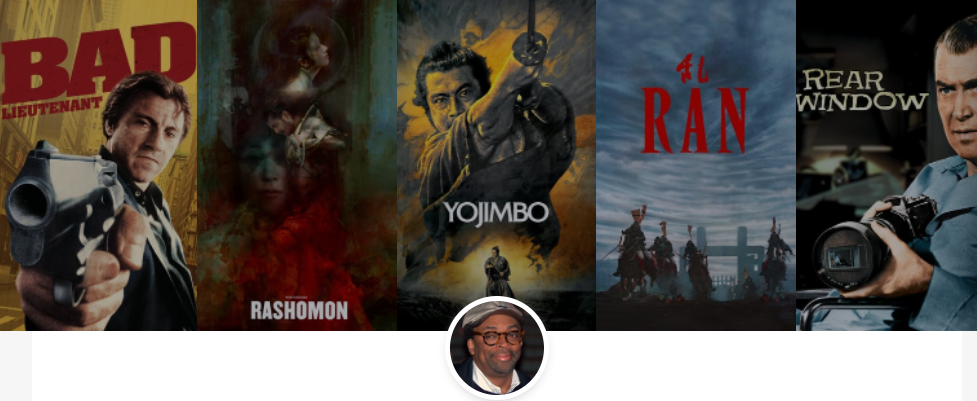
The following is spike lee's list of films to watch, he provide to his students.
How many have you seen? What are your favorites?
I reply belowI saw: Rashomon<one of my favorite kurosawa>, Yojimbo, Ran, Rear Window<jimmy stewart>, Vertigo<the woman who loves jimmy stewart when she dresses as the love interest>, North by Northwest<stuntwork>, Bonnie and Clyde<>, Ace in the hole<one of my favorite newspaper movies, kirk douglass is great:)>, Bridge on the river kwai<a great period piece, a little untrue but...>, lawrence of arabia<what happened to lawrence in that turkish officer's camp>, On the waterfront<I could had been a contender>, La Strada <anthony quinn:)>, godfather I and II, PAtton <george c scott is his character actor best>, MAd MAx I And II<I am surprised for this entry, but the action is lovely, and the fiction is a genre starter, how many apocalyptic movies is merely mad max, the Night rider!!!>, The battle of algiers <this is what river kwai isn't, much rawer>, The Last Detail <very few films deal with the military police like this film, honest end too, very honest>, West Side Story <Anita, stick with your own kind, if only the world heard her>, The Train <Jon VOigt and Eric Roberts, the end is a painting, the film is very visual, you feel the environment>, The Maltese Falcon <The stuff dreams are made of>, The treasure of sierra madre <this is one of my favorite films and in terms of mineral movies, put this next to there will be blood and they both ring very true>, MArathon man <Not a fan , but the performances are strong>, Boyz in the hood <the first film he placed that has a majority black cast, wouldn't be my first choice and I am not a fan of the film but ok, for me, daughters of the dust has to be near first as a mandatory, I think ceddo as well from sembene, but ok again>, Black Orpheus <it is a film in portuguese , and in brasil it is not as well known, though the soundtrack reverberated all over the world, white man wrote it but it is a fantasy film, and that is underrated>Raging bull <not a fan, but loved the performance by the brother who played sugar ray robinson>, apocalypto <still one of the most honest films about indigenous people in the american continent and the coming doom of their world at the hands of immigrants>, casablanca <here's looking at you kid, campy at some level, nice romance>, thief<like rollerball, this movie was ahead of its time, the thief character and the environment is just never before seen and immitated after>, cooley high <the third majority black cast on his list, a comedy, Many black people in the usa love comedy, I am neutral>, I Am cuba <who is betty:) it is in spanish, the shot for the revolutionary procession, taken without breaking from that distance is magic>, one flew over the cuckoo's nest<a 70's classic, the look inside insane asylums is blunt and honest>, district 9 <south african, but white not black... it will make you think a little of alien nation but a twist in that it deals with an extra challenge of immigration but in a way you may not expect>, in the heat of the night <some honesty, the detective story is the best part, at the end, both cops are united as cops which in itself is interesting>, white heat <I saw it but I have forgotten>, to kill a mockingbird <when you see brock peters in this compared to the pawn broker it is revealing to his greatness as a thespian>, chinatown <how many ships can you buy? what is it you want you don't already have?.. the answer is magic>, Black Rain <it is rare japan is viewed from this angle in a hollywood film, reminds you of japanese films, dealing with law enforcement>, singing in the rain <lovely dance numbers, and the female lead was in her first film i think >, PAths of glory <one of my personal favorite military movies, wonder if das boot is in this, paths of glory is still blunt in a way few military films are>, spartacus <I'll tell him who his father was, that voice:) >, Dr STrangelove <its a screwball parady on war movies that is quietly serious, that is the pary that makes it a rare gem, it is trying to be funny, but it is also trying to be serious>, kung fu hustle <when helen of troy screams:) you will know what I mean if you saw this film>, Close encounters of the third kind <open hand, tilt hand, close hand, open hand, tilt hand>, empire of the sun <not a fan of this film , but a rare appearance of japanese>, Cool hand luke <the chain gang sheriff in this film has become a standard parody character, the penal system in the usa is dirty though and this film does reflect some of it and also the connection many have in it, as they are poor or desperate or destitute>, badlands <Like a baby between silence of the lambs and bonny and clyde, the end is shocking at some level, makes perfect sense in the usa, but also alittle shocking in some ways>, the wizard of oz <funny it came out the same year as gone with the wind and harvey and a host of others.. was adud until t.v showed it to families, judy garland's voice, magic>, an american in paris <the dance routines, lovely>, lust for life <I oppose this film as an artist, I have nothing against van gogh but I oppose this film and it is brilliant, the performances, the honesty about artists loneliness, frictions with other artists, but I oppose this film >... my final assessment is no daughters of the dust. No Ceddo. No Oscar Micheaux. Wow! Spike, no micheaux. "Body and Soul" is a must for black cinema. "City of Joy" can get a shout, love om puri. his choices but I say ahh, I think he gave some directors too much or repeated too much. No horror in there. Where is "eyes without a face" or "diabolique" I think "Mississippi MAssala" deserves a shout. but hmmm
https://likewise.com/list/Spike-Lees-Watch-List-The-Greatest-Films-Ever-Made-5c4788b29d2f4319981925af -
March 31st 2022, the last day of Women's History Month in the year 2022
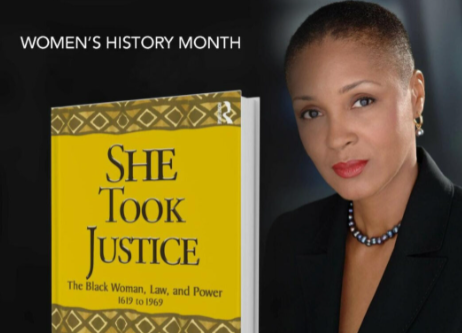
In a segment on Metrofocus, Gloria Browne Marshall, author of the book "She Took Justice" spoke about many things. Her key point is also the main theme of the book, the role of Black women in the USA as agents of litigious behavior. The word litigious was originally a slur. The idea being one who goes to court with an unhealthy passion. I think Black women in the USA see litigious behavior as mandatory for the non-violent while positively active progression in the Black community in the USA or for each Black individual in the USA.
I restate, Black women see in the legal code in the USA an empowerment against non-blacks but also against men. It is not that the law in the USA is perfect or a complete work. The law in the USA has in its elements, a lack of allowed collective bias that exists in many legal codes. That lack of a collective bias gives room for the individual to grow.
The historical proof to my assertion is the role of Black women in non violent movements in the Black community in the USA from the end of the war between the states to the time this prose was written. Black christian churches or groups, the national association for the advancement of colored people, the garvey movement, the historical black colleges movement financially supported by white religious groups, the Negro league, the Black Panthers for self defense. Black women historically make up a majority of said groups administrative members or members in whole.
I recall a Black woman from texas, her Black clan still own their house from the late 1800s, stated a story from past generations. In the tale, the matriarch of the family, told two nephews to leave for Chicago. The nephews wanted to enact violence upon the whites who have never stopped harassing this black clan for this house or land. The local white community successfully obtained most of the land or homes from said Black clans black neighbors. But, even though before during or after the nephews were sent north, whites harassed the Black clan, the female leaders of said clan always fight in the courts. They don't accept violent measures.
Litigious behavior from Black women is not meant to demand fairness or guarantee justice. The litigious behavior is about the self. It is the collective concept from a majority of Black women, an unproven point on my part, that nonviolent response only has one true battleground and that is courts. why? Sometimes one does not have money. Sometimes one does not have the ability to leave. The Black community in the USA is, common in history, financially impotent or culturally locked. Sequentially, absent use of arms which do cost money, what way can one battle for their rights? the courts.
Black men or women in the USA want betterment for the Black community in the USA or beyond. But Nat Turner to the DC Snipers show many examples of Black male ideas of betterment involve a use of violence that most Black men desire or accept, even if they do not exhibit, while most Black women oppose, in the USA.
You have to believe in the rule of law. Most Black men clearly do not. Black women do not think the Statian law is structured or utilized efficiently, or fairly, but they hold onto the idea that the USA's system of law at its core has human equality in it. That quality can not save all from a punch or bullet or violence, but said quality offers someone who may be alone, may be fiscally poor, maybe abused a pathway to overcome violence, without being violent. The USA law does not make winds stop fires or produce blades to cut ropes or adjust minds to Black enemies whether they be non black or not. But the USA law has a strength in its elemental philosophy , while slow or requiring long term patience beyond any individuals time to live, that can outmuscle the rule of might or money or violence all through a firmness of belief that any human can have in any condition.
Black women, a phenotypical gender group, are the heart of the USA's mythos. Black women have guided all other women, to the Native American woman's benefit whose male partner has been mostly killed, or against the White woman whose actions show a desire to replace her male counterpart while not desire any equality across the board. And while white men battling with arms created the USA, its existence as a functional multiracial community is born from Black women's litigious behavior.
To Black men in the USA, we have always had a hard time accepting the leadership of Black women. The evidence is ever present. From Black churches after the war between the states opposing Black women as pastors. To administrations of many organizations from Black churches to the nation of islam to the national association for the advancement of colored people to historical black colleges to the Black panthers for self defense, having very few publicly touted Black female leaders while Black women made up a majority of their administrations or did a majority of their logistic work. Black men , sadly perhaps a majority, desire the domination the white man has over the white woman. All I Can say is to not change your heart. IF you want violence, make it. Black history whether in the USA or Haiti or Mexico or Brazil or Venezuela or Guyana or Nigeria or Ethiopia or India or Indonesia or Philippines or Australia in the most recent centuries is full of whites from there or somewhere abusing blacks. But, Black women in the USA and through the USA to the global Black community show a determination to prove the Black community can thrive everywhere absent the rebuttal of violence that men in general favor. Do not get in Black women's way. Help them even if the best way is to leave.MetroFocus: April 28, 2021
https://www.pbs.org/video/metrofocus-april-28-2021-umxxzv/
Roughly a decade ago, Civil Rights Attorney and John Jay College of Criminal Justice Professor Gloria Browne-Marshall started work on what would become “She Took Justice: The Black Woman, Law, and Power -- 1619 to 1969.” The book reveals the courage Black women have demonstrated in the face of overwhelming racial prejudice and gender oppression. She joins us to discuss these true American heroes.She Took Justice from Gloria J Browne-Marshall
The Black Woman, Law, and Power – 1619 to 1969
https://www.kobo.com/us/en/ebook/she-took-justice
her twitter
https://twitter.com/GBrowneMarshall/Khabarla HAriya is a newspaper in India, run completely by women. But the women are not parsi which literally means persian or from the time of this writing, Iran. They are Dalits, who are considered one of the lowest caste, along with Siddi's. What do you have to comprehend about Asia. The indigenous people of India/Pakistan/all the parts of former Siam which was a chinese tributary state, current Philippines or Indonesia are all Black. Black defined as a skin of a dark brown. But like North Africa, said countries in asia have been dominated by whites of Asia or Europe, for centuries. Sequentially, most of the people in power in places like Egypt or India are not indigenous to those countries. In egypt, most fiscally wealthy egyptians are actually eastern european descended, from the mamluks. While most fiscally wealthy Indians are of Iranian descent.
In India, people in the USA commonly called Black are called Dark or Dallit or Siddi or similar. In asia Black is considered representing Black people of Africa. But not all Black people are African. The eskimo is indigenous but not Black. The Seminoles, a collection of indigenous groups, are indigenous like the Eskimo, but they are Black.
The video linked below speaks for itself. But the points to take is the idea of litigious behavior, non-violent behavior as vital to the growth of Black women, especially against male aggression, primarily from Black men. India is a nuclear powered country. A fiscally wealthy country. Its people's are Black. Its leadership is white, ala Egypt or South Africa. So consider this when you think on the persistence of Black women when they speak on Black men's behavior.
their website
https://khabarlahariya.org/?msclkid=65565c22af0411ec85bbc88e5fdec258
their youtube
https://www.youtube.com/channel/UCbvNC1RcIdlM2Kzn-QnjFngI shared Harriet Washington's book before but I will share it again
Medical Aparthied
The Dark History of Medical Experimentation on Black Americans from Colonial Times to the Present
https://www.kobo.com/us/en/ebook/medical-apartheid
her twitter
https://twitter.com/haw95Bill Maher referred to men in general , or his the polls he cited refer to men in general, but I offer a question.
To black men in any relationship, married or girlfriended, do you lust for your significant other?
I did not say like or love. I said lust. Offline I asked Black men, who are not strangers, in various places. Do you want to make love to your wife? I should had asked, do you want to fuck, but that style is not common to my offline speech.
And the question is, do you want to fuck?
Making love is beautiful, erotic, pleasurable. While lust is clearly carnal, a thing of the body, it has its own purity or power.
Now you may ask, what does male lust toward women matter in the context of women's empowerment. I say a lot. As women group, individually or collectively, men need to learn to do in majority what we have not been guided by past male generations or in media we own to do. Desire strong women. How many people see porn movie's entitled, gangbang ass blasters 16? From porn to music videos to many films, males are not presented or guided to desire a strong woman. Strength defined as independent from males or others in general. The independent woman is a difficulty, the independent woman is a challenge, the independent woman is mentally deranged. The woman you lust for is a living toy, a mechanical servant, an affordable commodity.
I have always viewed lust as partly about what you like to touch. From Black women berating black men in the home for their illegal activity while making money to Black women trying to be reporters while their communities starting with their husbands deem them antagonistic to the order of the world, Black men have to embrace the beauty of Black female independence. But that independence is not leading to a world where men are needed for money or opportunity. That independence is leading to a world where men are needed for three things with no attachments made of rings or papers or religion or clothing or money or bank accounts but supported by patience. The three things are love, liking, lust.“Hey Chris, I won’t be at the Academy Awards, and I won’t be watching,” she said in the video. “But I can’t think of a better man to do the job at hand this year than you, my friend.”
I shared Jada Pinkett's quote cause I recall a video of Chris Rock's response to Pinkett at the Oscars. No I have not watched any Oscars in my life and yes, this past weekend as well. I recall Rock replied in a video saying "we don't want you here"
My point is, Pinkett didn't focus on anything but the academy awards but Rock's reply was very personal. His words, and I didn't hear his whole joke, suggests the majority at the Oscars at that time were jubilant Pinkett didn't come or dismissive of the Film Academy's inequality or lack of quality.
He replied violently to a litigious argument. Later Will Smith replied violently to him after aiding in a mock to his wife with laughter. All Jada Pinkett did was show disapproval to Rock's joke, she never got up and made any physical gesture, which as one woman noted, is against the law.
My point is the dissonance between Black Women's litigious culture and Black Men's violent culture.
https://www.msn.com/en-us/movies/oscars/chris-rock-had-a-history-of-making-jokes-about-jada-pinkett-smith-before-will-smith-s-oscars-slap/ar-AAVAO6I?ocid=uxbndlbing&msclkid=a6abdb91aef211ecaf4f89bfe0a9dc5cQuestion, do Blacks need to care about non Black viewpoints?
When one is litigious, one cares about the nature of the court of law. The court of law is a place of opinion. This is why, law enforcers who commit crimes or illegalities can get leaner sentences from the same judge who placed an uncommon or harsher penalty on a first time offender who is Black.
One of the big contentious points between the Black genders is the consideration of the non Black. The non violent culture Black women brew demands a respect to the consideration of the non black , a potential enemy or stranger. The violent culture Black men desire, though do not brew as a group <at least functionally>, is by default unconcerned to considerations of the non black, regardless to whether enemy or stranger.
My point, Black people will be completely free when we don't care about the opinions of the non Black. But, on the road to that freedom , which will occur one day as it existed in the past, Black people must be delicate in how we consider the opinion of our actions in or out of our village.
https://ibw21.org/commentary/smith-and-rock-sent-a-horrible-message-to-the-world-about-us/?feed_id=319&_unique_id=62422642a9af7&fbclid=IwAR2x-Ia9-OneOAsRJmMwlA6_mgRjkKvlxj0GqrKsLxOm1KkdZyBUcxTw9LY
-

I Am Writing A Letter To Congress About Judge Brown
My Reply not given
I don't know if you wrote a letter or will write a letter. I don't know who you will send a letter to , or if you will not send it.
I wish Ketanji Brown well, I assume she will be confirmed, I don't concur to her governing philosophy.
But, if you want to know what I think need to be in a letter of support about KEtanji Brown Jackson. It is the following.The United States of America was born with two things, a reality side a philosophical ideal.
The reality we all know though never said: imperial/fiscally greedy/enslaving boaster country whose people have never paid for its sins witin its boundaries or beyond.
The philosophical ideal is advertised as the reality from before the USA was founded to the timing of this prose. Said ideal is that all humans are of one clan, not always family, not always friend, sometimes enemy, sometimes rival, and if law is designed with elements absent religion, absent financial greed, absent revenge, then its rule is a foundation of civility, an aspect that trancends human history as mandatory for the survival or growth of any people.
In the USA , if you break up all into phenotypical plus gender groups, KEtanji Brown is a Black Woman. Black Women have functionalized the philosophical ideal more than any other similar group in the USA, from their homes to boardrooms or classrooms or the street. KEtanji Brown who is not married to a Black person, while having a career based on merit in the bureaucracy of the government, presents the philosophical ideal. She is married to one whose people some say merit a vendetta upon them. She has a career of opportunity through patience, not power or inheritance, in a government that is hisorically an enemy to her people.
HAving a representative of Black Women , whose life reflects said philosophical ideal, on the Supreme Court of the USA is the most verified representation to an ideal that was and is not present or real, but is the hair of hope that the rule of law hangs on.
-
-
Good morning, good afternoon, good evening, to whomever is listening, I am Richard Murray , a creator who utilizes Kobo Writing Life, Kobo is K-O-B-O or is a member of the African American Literary Book Club, A-A-L-B-C or I am a member of Deviantart, hddeviant is my tag. In either Kobo or AALBC search my name Richard Murray or Sunset Children Stories.
International Womens day is upon us all and two questions was asked.
What do you believe can be done to address gender stereotypes?
Who are your favorite women, and why do they inspire you?What do you believe can be done to address gender stereotypes?
Are works of fiction stereotypes? Stereotypes means a solid form, I rephrase as a solid representation. But, is any representation in fiction solid?
I am a writer,as well as painter or programmer, and I will place myself in the siege perilous. For example, if I write a female character in a story, where said character falls over constantly or is abused by males gleefully or is disrespected in conversations absent cognition, is that character a stereotype? Is that character traits I just described a solid form of woman?
I say no. In my personal life, it is rare for females, women or girls, to have such traits. So, the character in my faux example is not a sterotype to the females I know. But, can any females, including the ones I know, be insulted by the presence of said character?
The answer is yes. And that is what the issue is. It isn't about the unsolid being solid. It is about the idea that if you see no evil, you think no evil. If no female ever sees a character as I just described then no insult to females, thus a betterment to their mind.
I am not a woman. But I am of the phenotypical race commonly called black. When I see some fictional interpretations of Black people, from the formerly enslaved Black woman beating the free while wild Black elected officials in Birth of a Nation or the bucktooth black female centaur in fantasia to the black-faced thespians still present in modern media, I don't feel positive. But, does that mean those interpretations are solid forms or stereotypes? Moreover, do said interpretations define me or my phenotypical race because they exist?
I say those interpretations are not solid forms nor do they define me or my phenotypical race.
But, I am not every single Black person. Some Black Individuals can't see or experience those negative interpretations.
And that is where the issue lays.
The strategy is, if you don't present negative interpretations, then negative interpretations can't hurt someone, regardless of the artistic consequence.
The biggest flaw in that strategy is art, by default, is beyond limitations. I quote the gmork from an interpretation of Die unendliche Geschichte, fantasia has no boundaries. I add, if fantasia has no boundaries then in fantasia are all the negative interpretations as well as the positive. Sequentially, blockading art is never being true to art.Who are your favorite women, and why do they inspire you?
My mother is my favorite female. She is parent while also my friend, as my father is my favorite male while also my parent or friend. My mother doesn't like when I mention her but not him:)
My mother inspires me because she is so positive, no matter how much my focus on or belief in functionality or efficiency or truth exists, she proves that having fun, being positive has a way of making life pleasant, regardless of dysfunction or inefficiency or lies.ART
TITLE: Valentine's Day 2022 Color gif
Artist: Richard Murray
URL: https://www.deviantart.com/hddeviant/art/Valentine-s-Day-2022-Color-gif-906988319POST COMMENT
https://www.deviantart.com/comments/1/907160601/4972967062
POST
https://www.deviantart.com/team/journal/International-Women-s-Day-2022-907160601
-

Short form answers
What do you believe can be done to address gender stereotypes?
A fictional interpretation is never a solid form, but can negative interpretations of women hurt women? The answer is yes.
The strategy is to stop negative interpretations of women, not cause every woman is hurt by them, so that no women can be hurt by them.
The problem is, art includes all interpretations of all things, it has no bounds. To rephrase, art includes interpretations of women that insult some women. if said art is blockaded is art then freely expressed? The strict answer is no. The question is, will you rather freely expressed art that can harm women or restricted artists that can not present art that can harm women?
Who are your favorite women, and why do they inspire you? If they’re deviants, tag them in the comments!
Women from my offline life, from history, from fiction I think of often or inspire me.
Some women of deviantart I like the most or inspire me. I will share the earliest women I know of on Deviantart that inspired me.
-
-
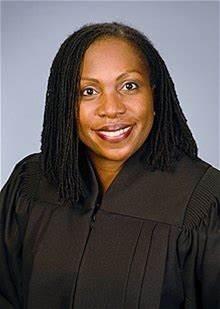
A Guest asked the following, I placed my reply in this same post postfix.
GRAPHIC LINK
LINK
What Did We Really Gain? - Culture, Race & Economy - AALBC.com’s Discussion Forums
He asked two questions
1) what did we really gain?
2) what influence to other black people is the intimate relations of Black people who are fiscally wealthy or in potent/heavily viewed places in government AND why are black people in said categories not regaled or desiring black only relations?
I will start with the first.
I don't know who the we is he refered to specifically. But, if by we, he meant the Black community in the USA, I present the following answer to his question.
As I define the Black community in the usa, which is not analagous to every black person on earth, let alone the usa, We gained nothing.
But comprehend it isn't a phenotypical speciality.
Individual achievements are not collective achievements. For example, one white man didn't enslave black people. The White community in humanity enslaved the Black community in humanity. In parallel, former mayor bloomberg of NYC is jewish. But, the same jewish women in NYC who complained about being abused by jewish men before his mayorlty, complained during his mayorlty and after.
Individual achievements are individual. The only thing communal from individual achievements is inspirations.
Other Black individuals have been inspired by Barack Obama who became president/Colin Powell who became head of the joint chiefs/condoleeza rice who became secretary of state/Clarence Thomas who became a supreme court judge and yes, if appointed <which i think she will be>or not <merely for being the first black female candidate>, Ketanji Brown Jackson. But, gain is not inspiration.
When a person says, I was inspired by a forebears activities that isn't gain. When a person says, i inherited from said forebears, that is gain.
To the second...
his posts details is not related to the title.
I will break up the second question into three questions.
A)What influence do intimate relations have to others in a village?
B)What had or is hindering Black on Black relationships , making people not good enough to each other?
C)What is the philosophical disconnect between black people in government to the black community, in the usa?
Answers
A) Human beings have the right to desire whatever philosophy comes to mind, sequentially, any relationship that is in opposition to that philosophy is negative. If a black man or woman feels Black people need to only be with other Black people, then a marriage between a black person side a white person is in opposition. The greater question is, what does the black person who is opposed to miscegenation do? Murder is against the law. Assault is against the law. Now, the philosophy is not against the law. An idea is to make it into law, or go somewhere where it can be made into law, as the usa has a legal system that naturally opposes opposing individual activities that are not inherently criminal. So, people can dislike the pairing of two individuals, this is very human. I have personally seen many negative reactions to miscegenation in various racial context in NYC: religious<jew/muslim>, phenotype <black/white>, geographic<dominican/puerto rican> and if it can happen in NYC, then many other places well, I arrest my case. But, the question isn't whether you feel impotent by a relationship you don't want to see, but what are you going to do about it.
B> Nothing is the answer. one of the great lies in modern humanity is the threat of miscegenation taking over any group. The truth is, most villages: black/white/muslim/asian/latino/ango/african/european/christian/atheis/vegan tend to marry in themselves by a clear majority. Anita told Maria to stick with your own kind, but in truth, most people do in the entirety of human history. And even though the usa offers a protection, a legal protection, or a cultural destigmatization through its media apparatus to miscegenation, it was, is , and never will be a common thing. Now do elected or appointed officials, deemed Black, at certain locals in the USA federal government have common ways that are uncommon among black people? yes. But, is that a problem or is that a reality? If you accept that the usa is a white country, then it isn't a problem. A white country will not allow Black individuals who don't fit accepted philosophies to ascend into certain offices.
C) Humanity has a problem, it is very old, very common, and is based on the lack of organization in communities or villages in general. I will explain.
The average person in the USA will say they are american, a proper label being statian. Americans are from canada to argentina. Now, the question is simple, if the over 300 million people in the usa is a village, is their one tribe. A tribe isn't a village. The STatian village has the black tribe, the white tribe, the native tribe , the female tribe, the christian, most are part of multiple tribes, but each tribe has its houses. the black tribe has the financial black elite house, the fiscal poor house, the black soldiers house , the black christian house, the black female house, and et cetera. and in each house are rooms.
but what is the problem. When a person is in a position of power what will their actions reflect? Will they reflect the combined erratic philosophy of the village or the complex philosophy of their tribe or thelattice of the house or the rigid of their room or the simplistic of self?
Sometimes a person's philosophy fits that of a house, like Hitler in germany. No his philosophy did not fit all germany. But it fit the working class plus poor christian tribes in Germany. Yes, majority exists in villages/tribes/houses. The USA was founded by enslavers, but the legal code stated the legal system defends the identity or safety of the individual over house/tribe/village. Now what does this have to do with black people in the usa. When the war between the states ended, as in all other times, many Black leaders existed. The Black leaders who prevailed were all financed by whites, all had a philosophy that was nonviolent in nature or individual in function.
Frederick Douglass side the black religious groups were the biggest leaders in the Black community in the usa at the end of the war between the states. The Black Churches nor Douglass wanted a Black state in the usa or some segregatory standing to whites in the usa /a black exodus to somewhere else/a black war against whites for revenge. this doesn't mean millions of black people were opposed to that. Nat Turner was a real person, lived at the same time as Frederick Douglass. But, the most well financed Black leaders, were those who believe in Black Individualism. What is Black Individualism? It is very simple, it says, the Black community in the USA, or the world, grows when each or every individual in it grows. TO restate, if every Black person starts a business or starts another business till they succeed with a solid firm, then the black community is doing great. And it didn't require a specific organizational model or strict adherence by each individual to a code or creed.
What are the advantages of Black individualism? it needs no central organization or leader or judgement board. A Black woman can marry a white man or a Black man can marry a white woman and succeed in Black individualism by being a supreme court judge regardless of their legal opinions or standings. A Mulatto can deem himself Black and marry a Black woman and succeed in Black Individualism by becoming president of the USA with the purpose of helping all in the USA. Black individualism doesn't concern with how the individual relates to the community, it concerns with how the individual relates to self. A Black woman can be unmarried and a billionaire and succeed in Black Individualism regardless of her activities in the Black community, ala Oprah Winfrey.
Now, Frederick Douglass who had white female mistresses, was a huge believer in Black Individualism. As a subset of Individualsim, Black Individualism suggests, regardless of a communities/villages/tribes situation, the individualism is still valid. So, even though Black children were being burned alive, black women were being hung while pregnant, Black towns were being annihilated and looted by whites, black elected officials in the USA led by the guidance of Black churches or Black leaders like Frederick DOuglass didn't say, war of revenge/segregate or other philosophies, I mentioned. They said, Black Individualism and support the legal system of the USA which defends individualism at its core. Thus, the Black community in the usa for over 150 years has been led by Black Individualists. Sometimes you get communalists like Malcolm or Garvey or Nat Turner but the majority of Black people in the USA are individualists, not communalists. Remember, it isn't that Black Individualists don't want betterment for all Black people. But, they plan that betterment through each individual life supported by a legal code, not activities requiring the combined village or parts of the village in circled about its own code. Is it wrong or right? good or bad? neither in either question. The only valuable question is, is it functional? To reword, is it working?
If you are honests and look at the Black community in the USA, the answer is yes based on the philosophy. This is why it is important to view things from the angle of a tribe. A Black Nationalists will say it isn't working. But why? Black Nationalists demands things to be created by Black people. Sequentially, using a white created legal system/being in positions in a white made government, go against the nature of Black Nationalists. As all Nationalists are looking to to be part of things, their particular race creates. But Black Individuals don't plan through communal action. It isn't the Nation of Islam which is a group led through a leader, or Back to Africa which is a segregatory agreement by all in it. Black Individualism, like all individualism, goes against the individual acting as leader for any group. Black Individualism goes against accepting any creed or code as a collective standard to any group. Black Individualism supports the individual's gain. The only relationship to others is inspiration. even if it is dislike. So for example, if a Black person left the USA after BArack Obama became president to a Black country, Black country defined as a country where most humans are in the phenotypical range commonly called Black, Black Individualism accepts the act cause that is the individuals wish/activity, even if the person left cause they are a Black Militant and want Black people to have an offensive , violent, abusive, or militaristically potent stance towards non Blacks. Barrack Obama's presidency to a Black Militant is sinful, against their being. But, even if the Black Militant acts from their philosophy, Black Individualists support their actions as individuals while opposing their communal mantra.
Finally, the elected leaders in the USA are usually/mostly, Black Individualists. They don't see their legal impotency to Black communal growth as not helping the Black community cause they don't see Black communal action as the way to help the Black community. It isn't Black man starts business to help black people. It is Black man starts business to own a great business. All other Black Individuals can thus do the same, regardless of restrictions/boundaries/limitations or any other negative.
Again, is it right or wrong? neither. Is it good or bad? neither.
All have to choose their tribe in the village. The only true question is what will you do to hold true to your tribe.
-
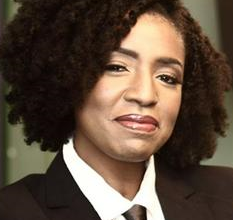
Why can't these articles ever start with the name of the individual. It is always,a black woman, a black man, her name is Tammy Williams. They mentioned Tyler perry's name but she is a black woman.
Second, the article clearly states she was given fina outright at the moment. doesn't own these studios outright at the moment. I am not certain if tyler perry owns his outright.
Third, I went to Tyler PErry Studios website < https://tylerperrystudios.com/ > and I noticed key variances between his studios website and those of Warner Bros. < https://www.wbstudiotour.com/ > or Universal Studioes < https://www.universalstudios.com/ >
Tyler perry studios website is pitching their studio to be a place for films to be made. Warner Bros is pitching their studio like a museum, or tourist attraction. Universal pitches their studio as a complete package: movies/theme parks/services.
Tyler PErry studios is new, but I see an interesting financial reality compared to its elders. Tyler PErry studios isn't old enough or been the venue for enough films to warrant the warner bros approach, and time is a mandatory factor in that. But, universal's approach doesn't require time but investment. Universal studios have movies to show. Theme parks from movie studios require movies from the movie studio to be popular enough.
Thus Tyler perry studios needs to be a place where films are made.
Why does all this talk about tyler perry studios matter in conjunction to Tammy Williams studio. Both studios seem technologically capable from the outside. But, both lack a high quantity of films being made. Now some will way , quantity is better than quality but I oppose that view. IF you look at any globally known film industry based in a particular geograph, from Bollywood or other woods of India, Hong Kong Cinema, French Cinema, Hollywood based in the california, they all have one thing in common. At least one period of time with prolific creation, where many movies are not known to the world, but gems of global cinema arrived.
The lesson is, if these Black georgian woods want to grow, they need to have someone willing to spend as much money on the film studios as on films themselves.
And that leads to my main point. Tammy Williams side Tyler PErry need someone to equal their money in studio infrastructure in making films. Comprehending, that making films in high quantity is by default a financially losing enterprise, sequentially, if Tammy Williams or Tyler PErry or either of their financial friends can only invest in surety then neither studio will reach their elders potency in triple their lifetime.ARTICLE
MOVE OVER TYLER PERRY! A BLACK WOMAN WILL OWN A $135 MULTI-MILLION DOLLAR PRODUCTION STUDIO IN ATLANTA
by Yolanda BaruchA Black woman is now a majority owner of a new multi-million dollar Film/Television studio in Atlanta, The Atlanta-Journal Constitution reports.
Tammy Williams has over 25 years of experience in the Film/Television industry. She has written and produced a plethora of projects such as films, biographies, documentaries, entertainment, and network news, according to her biography on IMDB.
Williams owned her first digital production company called Tammy’Dele Film in 2016 and is now the first Black woman to own a $135 million studio and post-production facility space in Atlanta, Georgia.
Williams and her business partner Gary Guidry, an investor and CEO of G-Square Events and Black Promoters Collective, founded Cinema South Studios.
“We’ve been patient,” she said. “This has not been an overnight thing, this vision for us,” Williams has worked towards making her dream a reality for 12 years.
They will begin to break ground in March for Cinema South Studios located north of Fayette County.
The studio will occupy 60 acres and intends to have eleven soundstages, a back-lot, a prop house, a wardrobe rental facility, and a lighting grip rental house. The production facility will include a transportation company and an office building to house a theater and post-production facilities, reports AJC.
Williams aims to have two soundstages operable by the first quarter of 2023.
“The demand for soundstages is happening globally, and the ownership rarely looks like us, let alone an African American woman,” said Guidry said in an official release, reports AJC. “When I choose to invest, I evaluate the need of the business and the ownership. Investing in Tammy Williams and her team of professionals convinced me that buying the land in Fayetteville, GA.”
Cinema South will serve as the umbrella for Williams’ production company, Tammy’Dele Films. It will host the education section of Tammy’DeleFilms Workshops and Cinema South Film Academy, where she will conduct job training seminars.
Currently, Tyler Perry Studios in Georgia is the largest film production studio in the United States, and established Perry as the first African-American to outright own a major film production studio.
https://www.blackenterprise.com/a-black-woman-will-own-a-multi-million-production-studio-in-atlanta/
SOURCE ARTICLE
https://www.ajc.com/neighborhoods/fayette/new-film-and-tv-studio-coming-to-north-fayette-county/57T3ROTTVJAMFEDJXW535EECPY/
-
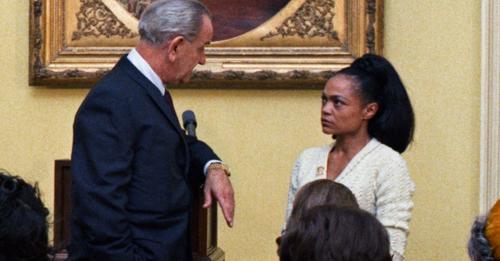
The Black Individual in the USA isn't best for the Black community in the USA, but is best for the Individualist culture in the USA to survive and grow beyond the USA's government bounds.
ARTICLE
When Eartha Kitt Disrupted the Ladies Who Lunch
Scott Calonico’s documentary short “Catwoman vs. the White House” reconstructs an unexpected moment of activism during the Vietnam War.
Film by Scott Calonico
Text by Lauren Elyse Garcia
February 16, 2022
Eartha Kitt didn’t want to attend the White House luncheon that wound up derailing her career: the 1968 Women Doers Luncheon, the First Lady Claudia (Lady Bird) Johnson called it. The topic of interest would be delinquency in the streets. Kitt didn’t put much stock in the gathering. “Those luncheons—what are they gonna mean?” she remembered thinking. “Blah-blah-blah-blah-blah, and that’s it.”
Kitt, in fact, had crashed a luncheon roughly a month earlier, playing Catwoman in an episode of “Batman,” the campy, Skittles-hued series that punctuated its punches with “Bam!”s, “Whack!”s, and family-friendly messages about how crime isn’t groovy. At the fictional luncheon—a celebration of Batgirl, Gotham City’s declared best-dressed woman—the ladies who lunch, coiffed and hatted, politely clap as they sit in front of tables that hardly have any lunch on them. Holy yawn fest, Batman. When Kitt as Catwoman interrupts the affair, her skintight, shimmery noir catsuit is a titillating, sharp gasp against all that dull prettiness. “How can Batgirl be the best anything when Catwoman is around?” she says, with a sensual smirk. In her embodiment of Catwoman, her musculature moves in prowls; her vibrato is translated into purrs; she’s PG-rated sex. It’s the kind of immortally slinky performance that gets mass-produced in polyester every Halloween. Kitt was one of the rare Black female performers to make it to prime time, and she was glorious in the television’s glow. But at Lady Bird’s luncheon Kitt earned herself another kind of fame.
At that event, in front of another room full of polite ladies with coiffed hairdos and hats, Kitt spoke out against the Vietnam War. The war was in its thirteenth year and under its third sitting U.S. President with Lyndon B. Johnson, and the mood of the nation’s youth about his Vietnam policy may best be encapsulated by the chant “Hey, hey, L.B.J. How many kids did you kill today?” Kitt, who didn’t think of herself as a political person, had spent time working with youth organizations, so she knew how the kids felt, and how they feared. “You send the best of this country off to be shot and maimed. They rebel in the streets. They will take pot, and they will get high. They don’t want to go to school, ’cause they’re going to be snatched off from their mothers to be shot in Vietnam,” Lady Bird would later recall Kitt saying. “No wonder the kids rebel and take pot—and Mrs. Johnson, in case you don’t understand the lingo, that’s marijuana.”
The event that was the 1968 Women Doers Luncheon has been well documented—Kitt herself spoke, and wrote, of the ordeal on many occasions—but Scott Calonico, the director of the documentary short “Catwoman vs. the White House,” presents a more comprehensive view. Calonico told me that he wanted to find out if he could unearth any firsthand recordings of the famous moment. Thus, with footage from the L.B.J. Presidential Library, combined with recorded accounts from Kitt and Lady Bird’s audio diary, he succeeds in reconstructing the scene that would make the front page of the New York Times, published with the headline “eartha kitt denounces war policy to mrs. johnson.” This woman doer did too much. As a consequence, Kitt was virtually unhirable in the United States for a decade.
Calonico also weaves in episodes of Kitt in “Batman” with the real-life footage of the Women Doers Luncheon, bouncing back and forth between Catwoman plotting in Gotham City and Kitt protesting at the White House. The film captures the political niceties that border on the absurd: women giddily looking under the china to see what era it had come from juxtapositioned with protesters taking the streets of D.C. Smaller moments that can easily get lost in retellings are punchier here, and equally significant: L.B.J., in an impromptu appearance, taken aback when Kitt spontaneously approaches him with a question; Kitt raising her hand throughout the meal but not being allowed to speak; Lady Bird focussing intently on Kitt, how she smolders, how she smokes, how she doesn’t even eat or clap or play along. Such instances all add to the ante, building up the tension and agitation that peak in the inevitable moment when Kitt takes her stand.
Kitt’s fatal error wasn’t being against the war—many people, including some of those women at that very luncheon, agreed with her. It was saying so out loud, at a White House soirée. “Before this, most people didn’t question going into a war,” Calonico said. “The fact that Eartha brings this up, and then two weeks later the Tet Offensive happens—it just shows how the U.S. had kind of been lying about how well they’d been doing.” Outside of the White House, some recognized Kitt’s action as valorous. Calonico found an image, taken from a protest a mere day after the luncheon, of a woman carrying a poster that reads “Eartha Kitt Speaks for the Women of America.” Kitt was the hero the country deserved, and, frankly, the one it needed, too. -
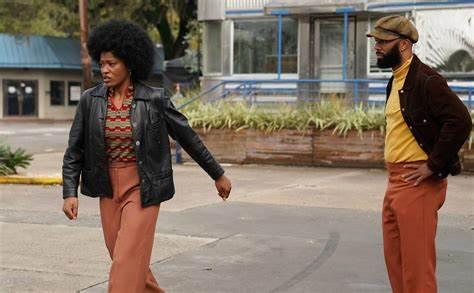
MY THOUGHTS to Alice 2022
First to history,
Mae Louise Walls Miller is the name of the Black woman whose life, in my opinion, was a prime source to the research from Antoinette Harrell, who spanned many Black individuals in slavery or criminal bondage. I must say that first as the authors or content creators to many, most I viewed or read, articles/videos about the alice 2022 film didn't seem able to mention the Black woman in question, whose real life story inspired the video fable or the black woman who researched her.
The story of Miller, in the articles below in more detail, displays one of the large problems when we assess usa history. Most problems in the USA are publicly known, but financial profit or fear blockade any action. The White community profited from black enslavement before or after the 13th amendment, and thus white individuals or groups were against opposed in any form, including merely speaking, to stand against abuses to blacks from the white community.Second to the law
Like mandates, proclamations are not laws in the usa legal system. Proclamations are public announcements by the government. Mandates are public orders by the government. Proclamations or mandates by default are contestable in a court of law as they are not laws. The 13th amendment is a law, and it ended slavery throughout the entirety of the usa but the penal system.
I quote:
"Section 1
Neither slavery nor involuntary servitude, except as a punishment for crime whereof the party shall have been duly convicted, shall exist within the United States, or any place subject to their jurisdiction.
Section 2
Congress shall have power to enforce this article by appropriate legislation."
Sequentially, the emanicpation proclamation has to stop being referred to as the moment slavery ended. From a legal standpoint, slavery has never ended, so black people saying it has is not being honest to the situation of the black community in the usa.Third to the video fable,
I keep hearing Donny Hathaway's to be young gifted and black in my head, when I see Common. Am I wrong?
Many of the articles seem focused on suggesting this as a faux history, when I see more of a Black film fiction circa 2000. For me the story of this film of a black women who thinks she is in the 1800s but is in truth, 1960s is clearly modern Black horror in the space of Get Out or US.
The poster and the words of the director clearly show this is a movie worthy of the roles Pam Grier played in the 1970s. A good revenge romp for fans of that genre or those with a penchant for black heroes in film.ALice 2022
written and directed by Krystin Ver Linden
Keke Palmer as Alice
Jonny Lee Miller as Paul Bennet
Common as Frank
Gaius Charles as Joseph
Alicia Witt as RachelARTICLES
TITLE: Black People in the US Were Enslaved Well into the 1960s
AUTHOR(S):Antoinette Harrell , at told to Justin Fornal
TIME OF PUBLISH: February 28, 2018, 12:00am
CONTENT: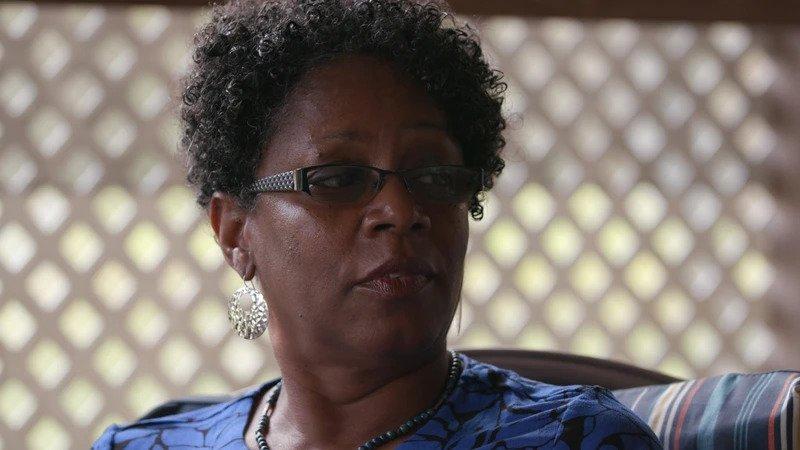
More than 100 years after the Emancipation Proclamation, there were black people in the Deep South who had no idea they were free. These people were forced to work, violently tortured, and raped.Historian and genealogist Antoinette Harrell has uncovered cases of African Americans still living as slaves 100 years after the signing of the Emancipation Proclamation. The 57-year-old Louisiana native has dedicated more than 20 years to peonage research. Through her work, she's unearthed painful stories in Southern states like Louisiana, Mississippi, Arkansas, and Florida. Over a series of interviews, she told Justin Fornal about how she became an expert of modern slavery in the United States.
My mother always talked to me about our family history and the family members who had passed on. She only knew so many stories, so oftentimes she would tell the same ones over and over again. Each time she repeated a story, I felt like she was trying to give me a message. It was like she was trying to tell me that if I wanted to know more about who we were, I would have to dig deeper.
We knew our family had once been slaves in Louisiana. In 1994, I started to look into historical records and public records. I found my ancestors in the 1853 inventory belonging to Benjamin and Celia Bankston Richardson. Written down alongside other personal belongings that included spoons, forks, hogs, cows, and a sofa were my great great grandparents, Thomas and Carrie Richardson.
Carrie and her child Thomas had been appraised at $1,100. Seeing my ancestor’s perceived value written on a piece of paper changed me. It also set forth the direction of my life. It was terribly painful, but I needed to know more. What did they do after Emancipation in 1863? Where did they go? I tracked down Freedmen contracts of the Harrell side of my family that proved that they were sharecroppers. Word started spreading around New Orleans about how I was using genealogy to connect the dots of a lost history. Soon enough people started requesting that I come and speak about how I was uncovering my family’s story so they could do the same for themselves. It became a chance to find out who we were and where we came from as descendants of enslaved people. This was a chance to learn a history we were never taught in school.
The only fact that seemed certain was that slavery ended with the passing of the Emancipation Proclamation in 1863. But even that turned out to be less than true.
One day a woman familiar with my work approached me and said, “Antoinette, I know a group of people who didn’t receive their freedom until the 1950s.” She had me over to her house where I met about 20 people, all who had worked on the Waterford Plantation in St. Charles Parish, Louisiana. They told me they had worked the fields for most of their lives. One way or another, they had become indebted to the plantation’s owner and were not allowed to leave the property. This situation had them living their lives as 20th-century slaves. At the end of the harvest, when they tried to settle up with the owner, they were always told they didn't make it into the black and to try again next year. Every passing year, the workers fell deeper and deeper in debt. Some of those folks were tied to that land into the 1960s.
I couldn’t believe what I was hearing. Most shocking of all was their fear. I saw time and time again, people were afraid to share their stories. They were afraid to give this information to me, even behind closed doors decades later. They believed that they might somehow get sent back to a plantation that wasn’t even operating anymore. As I would realize, people are afraid to share their stories, because in the South so many of the same white families who owned these plantations are still running local government and big businesses. They still hold the power. So the poor and disenfranchised really don’t have anywhere to share these injustices without fearing major repercussions. To most folks, it just isn’t worth the risk. So, sadly, most situations of this sort go unreported.
Six months after that meeting, I was giving a lecture on genealogy and reparations in Amite, Louisiana, when I met Mae Louise Walls Miller. Mae walked in after the lecture was over, demanding to speak with me. She walked up, looked me in the eye, and stated, “I didn’t get my freedom until 1963.”
Mae's father, Cain Wall, lost his land by signing a contract he couldn’t read that had sealed his entire family’s fate. As a young girl, Mae didn’t know that her family’s situation was different from anyone else’s. The family didn’t have TV, so Mae just assumed everyone lived the same way her brothers and sisters did. They were not permitted to leave the land and were subject to regular beatings from the land owners. When Mae got a bit older, she would be told to come up to work in the main house with her mother. Here she would be raped by whatever men were present. Most times she and her mother were raped simultaneously alongside each other.
Her father, Cain, couldn’t take the suffering anymore and tried to flee the property by himself in the middle of the night. His plan was to register for the army and get stationed far away. But he was picked up by some folks claiming they would help him. Instead, they took him right back to the farm, where he was brutally beaten in front of his family.
When Mae was about 14, she decided she would no longer go up to the house. Her family pleaded with her as the punishment would come down on all of them. Mae refused and sassed the farm owner’s wife when she told her to work. Worrying that Mae would be killed by the owners, Cain beat his own daughter bloody in hopes of saving her. That evening still covered in blood, Mae ran away through the woods. She was hiding in the bushes by the road when a family rode by with their mule cart. The lady on the cart saw the bush moving. She got off to find Mae crying, bloodied and terrified. That white family took her in and rescued the rest of the Wall’s later that night.
These stories are more common than you think. There were also Polish, Hungarian, and Italian immigrants, as well other nationalities, who got caught up in these situations in the American South. But the vast majority of 20th-century slaves were of African descent.
When I met Mae, her father Cain was still alive. He was 107 years old, but his mind was still incredibly sharp. A few times we sat together with Mae and the other siblings. It was a brutal catharsis for them to speak about what happened on that farm. I’ll never forget the look in their eyes when one would speak about a horror they endured. It was clear they had never shared their individual stories with one another. It was something that was in the past so there was never a reason to bring it up. One day Cain was watching the television, and there was a Caucasian man with stark white hair on the program. The way he looked must have reminded Cain of someone from the farm. Cain believed that because he had told me what happened on the farm that the man on the TV was going to come to his house and drag him back. Opening the suppressed memories upset him so much he ended up in the hospital. The family kept me away for a while after that.
But Mae and I became good friends and would lecture together. There were unusual ticks she had from her upbringing. Sometimes, when we would be at an event where there was free food, she couldn’t stop eating. She told me this was from years of not knowing when she would eat again. There were other times she would need to take her shoes off. She had grown up not wearing shoes and said sometimes her feet felt uncomfortable when she wore them. The nuances of Mae’s PTSD from growing up as a slave gave me a look into what life must have been like for many of our ancestors who were held under such inhumane conditions.
Mae died in 2014. She was a fearless beautiful spirit and has left a gigantic void. I am glad her brother Arthur is continuing to tell the Wall’s family story. People who hear these stories will often say, “You should have gone to the police.” “You should have run sooner.” But the land down here goes on forever. These plantations are a country unto themselves. The property goes from can't see to to can't see. Even if you could run, where would you go? Who would you go to?
Do I believe Mae’s family was the last to be freed? No. Slavery will continue to redefine itself for African Americans for years to come. The school to prison pipeline and private penitentiaries are just a few of the new ways to guarantee that black people provide free labor for the system at large. However, I also believe there are still African families who are tied to Southern farms in the most antebellum sense of speaking. If we don’t investigate and bring to light how slavery quietly continued, it could happen again.
There were several times when I returned to the property where Mae and her family were held. There isn’t much there anymore in terms of the farm.
One day I walked with Mae deep into the woods to see the old green creek she always spoke about. That filthy patch of water where the cows pissed and shit was the same water that Mae and her family drank and bathed in. As we stood together looking into the water Mae’s words were forever seared into my soul.
“I told you my story because I have no fear in my heart. What can any living person do to me? There is nothing that can be done to me that hasn’t already been done.”U.R.L.: https://www.vice.com/en/article/437573/blacks-were-enslaved-well-into-the-1960s
TITLE: The enslaved black people of the 1960s who did not know slavery had ended
AUTHOR: ISMAIL AKWEI
CONTENT: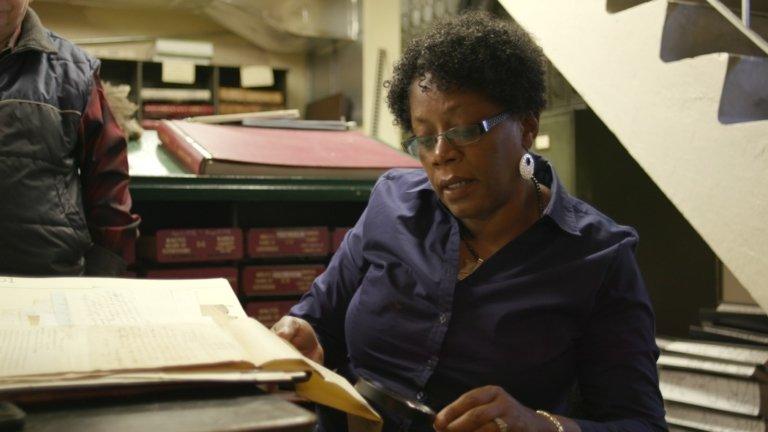
The Emancipation Proclamation of 1863 which changed the status of over 3.5 million enslaved African Americans in the South from slave to free, did not emancipate some hundreds who were slaves through to the 1960s.
This was revealed by historian and genealogist Antoinette Harrell who unearthed shocking stories of slaves in Southern states like Louisiana, Mississippi, Arkansas, and Florida over hundred years after the Emancipation Proclamation.
She told Justin Fornal that her 1994 journey of historical truth revealed the stories of many 20th century slaves who came forth in New Orleans when they heard that she was using genealogy to connect the dots of a lost history.
She said a woman introduced her to about 20 people who had worked on the Waterford Plantation in St. Charles Parish, Louisiana, as slaves until the 1960s.
“One way or another, they had become indebted to the plantation’s owner and were not allowed to leave the property … At the end of the harvest, when they tried to settle up with the owner, they were always told they didn’t make it into the black and to try again next year. Every passing year, the workers fell deeper and deeper in debt,” she said.
Many of them were afraid to share their stories as they believed they will be sent back to the plantation which isn’t even in operation. “People are afraid to share their stories, because in the South so many of the same white families who owned these plantations are still running local government and big businesses. They still hold the power.
“So the poor and disenfranchised really don’t have anywhere to share these injustices without fearing major repercussions. To most folks, it just isn’t worth the risk. So, sadly, most situations of this sort go unreported,” she told Justin Fornal and was published in art and culture magazine website Vice.
One of the 20th-century slaves was Mae Louise Walls Miller and she didn’t get her freedom until 1963. Her father, Cain Wall, lost his land by signing a contract he couldn’t read that enslaved his entire family.
They were not permitted to leave the land and the owners subjected them to beatings and rape. Mae and her mother were most times raped simultaneously alongside each other by white men when they go to the main house to work.
According to Harrell’s narration, Mae and her family did not know what was happening outside the land as they had no TV. Her father tried to flee the property, but was caught by other landowners who returned him to the farm where he was brutally beaten in front of his family.
When Harrell met Mae, her father was alive and he was 107 years old with a sharp memory. He beat Mae when she was 14 for attempting to flee the farm, an action whose consequence was beating of the entire family.
Mae, covered in blood, still run into the woods in the evening and hid in the bushes where a white family took her in and rescued the rest of her family later that night.
Harrell said the family suffered from PTSD as a result of their experiences. Mae died in 2014.
“I told you my story because I have no fear in my heart. What can any living person do to me? There is nothing that can be done to me that hasn’t already been done,” Mae told Harrell when they visited the property she and her family were held.
Antoinette Harrell believes “there are still African families who are tied to Southern farms in the most antebellum sense of speaking. If we don’t investigate and bring to light how slavery quietly continued, it could happen again.”
< https://video.vice.com/en_us/video/vice-the-slavery-detective-of-the-south/5a947b9cf1cdb3764f3eee86?jwsource=cl >
URL: https://face2faceafrica.com/article/the-enslaved-black-people-of-the-1960s-who-did-not-know-slavery-had-endedTITLE: Made in Frame: Inside Krystin Ver Linden’s Fiery Sundance Debut, “Alice”
AUTHOR: Lisa McNamara
CONTENT:
Utilize the link for the content, but the videos are placed immediately below< https://www.youtube.com/watch?v=rHqrOSTIovU >
< https://www.youtube.com/watch?v=OibZx09HYAA>
U.R.L. : https://blog.frame.io/2022/02/14/sundance-alice-krystin-ver-linden/
TITLE: Keke Palmer to Star in True-Story Thriller ‘Alice’
AUTHOR: Chris Gardner
CONTENT: Utilize the url below to read but I placed an image of Keke palmer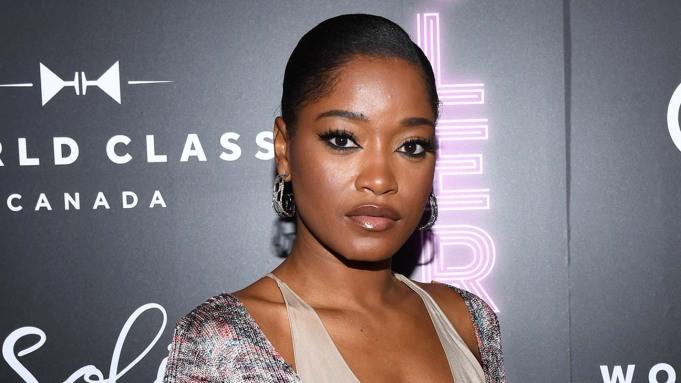
TITLE: ALICE (2022) Movie Trailer: Keke Palmer Escapes from Jonny Lee Miller’s Plantation in Krystin Ver Linden’s Film
AUTHOR: ROllo Tomasi
CONTENT: Utilize the url below to read the article, I placed the trailer and movie poster beneath.
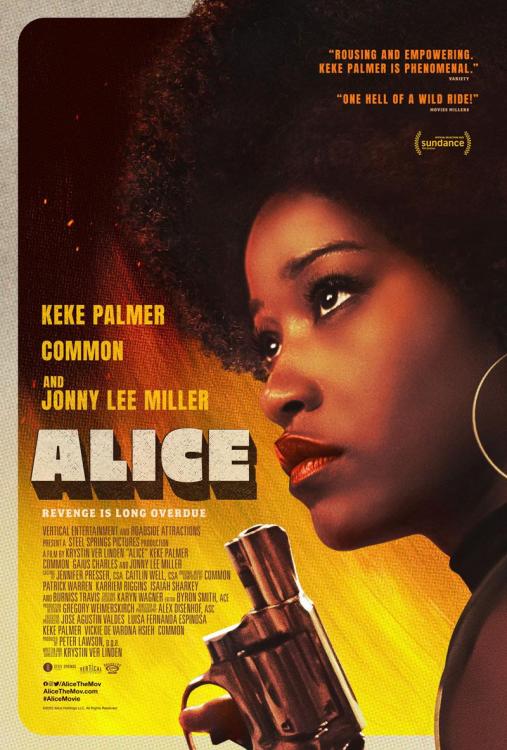
< https://www.youtube.com/watch?v=h5CHq89MPnE >

